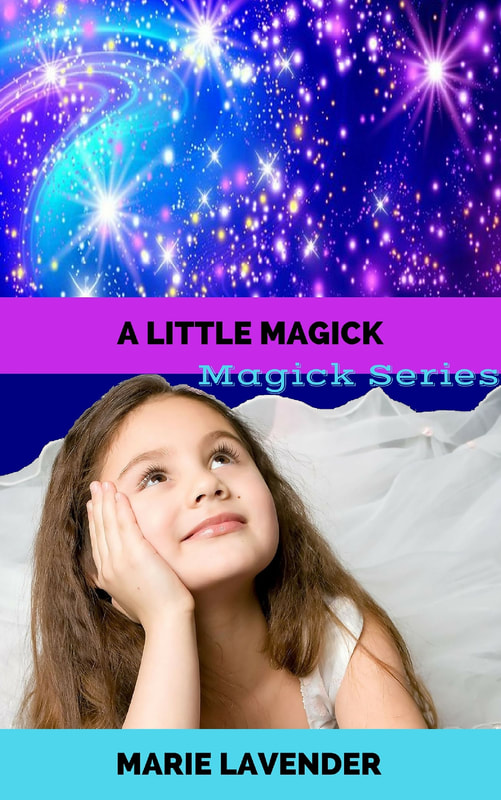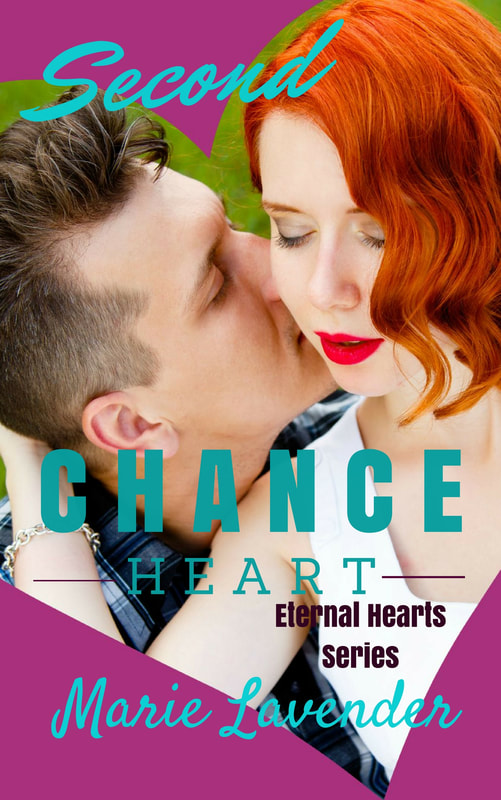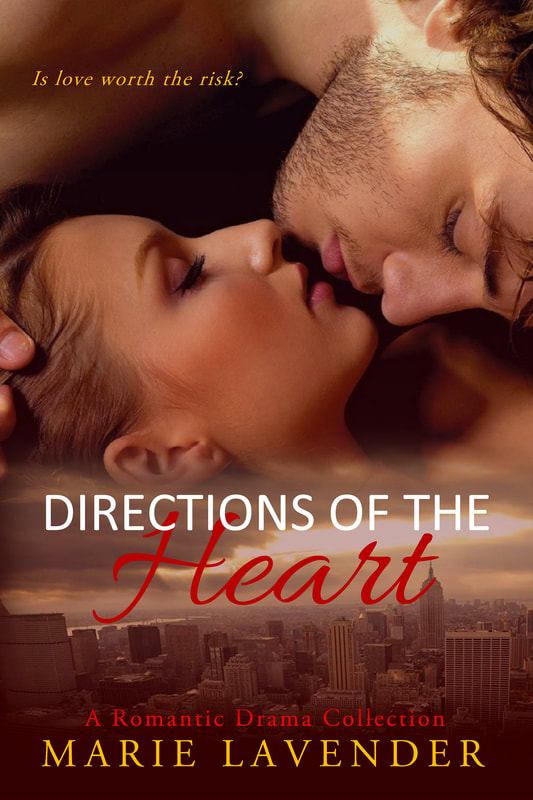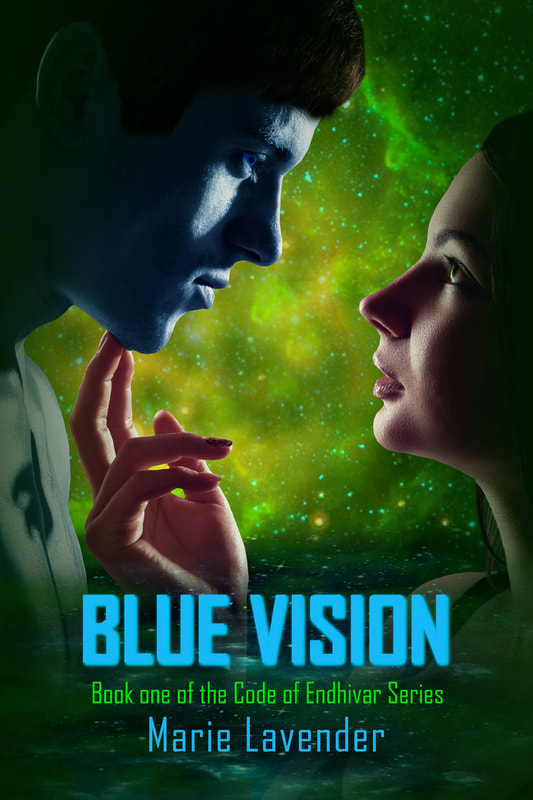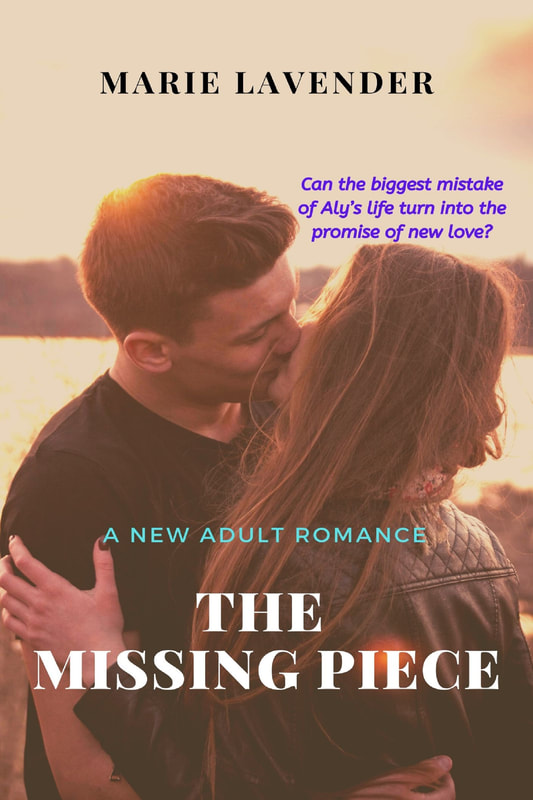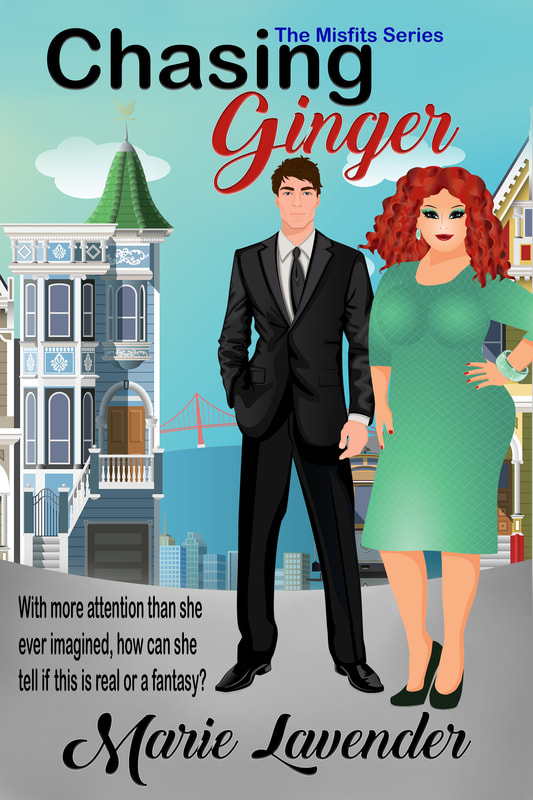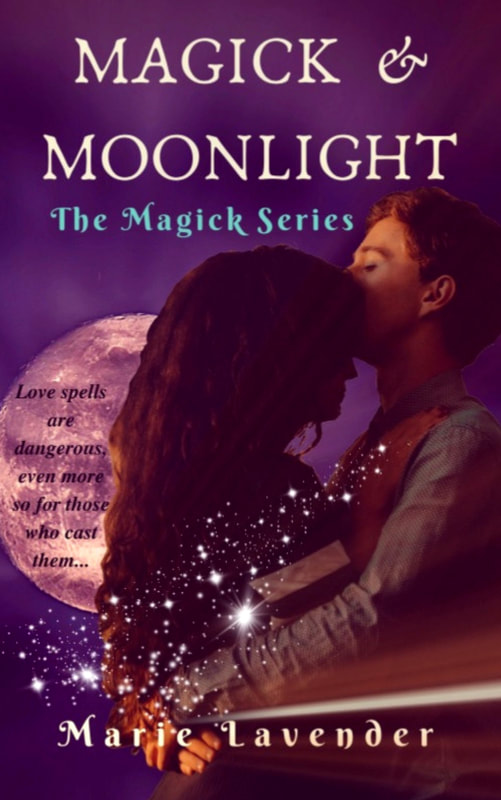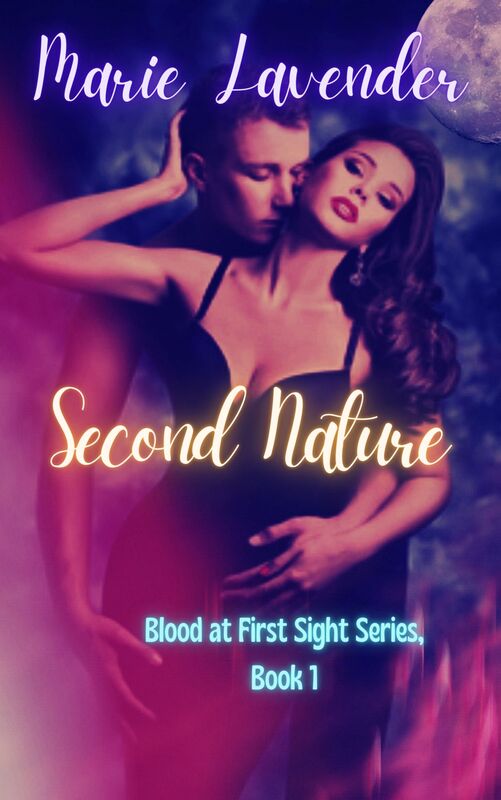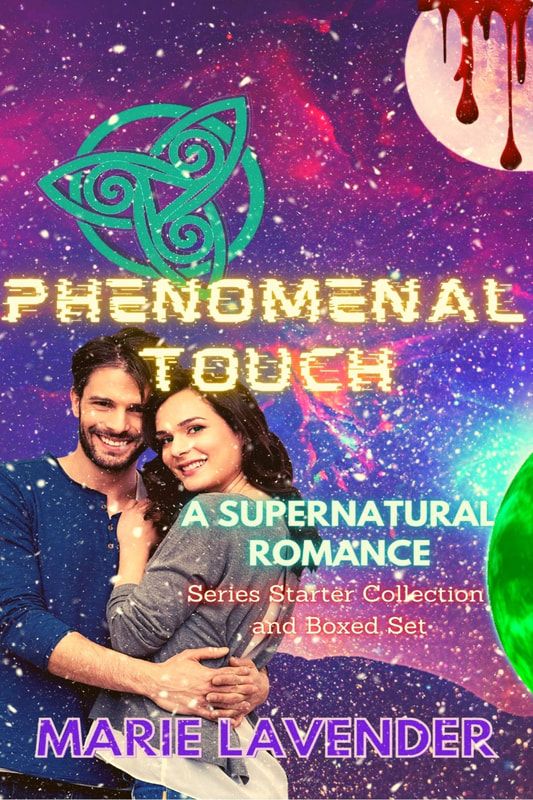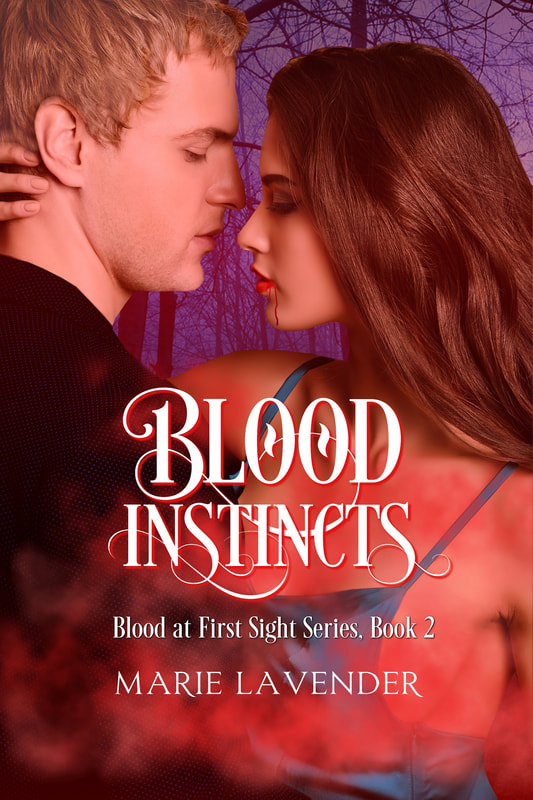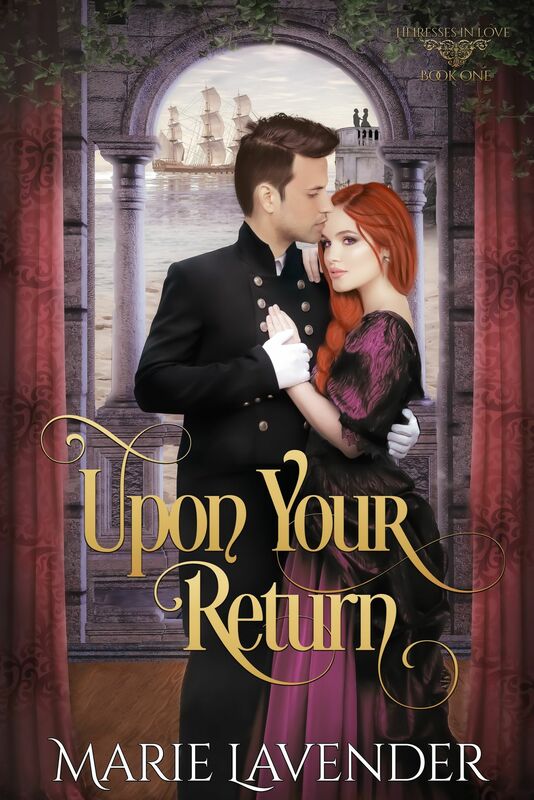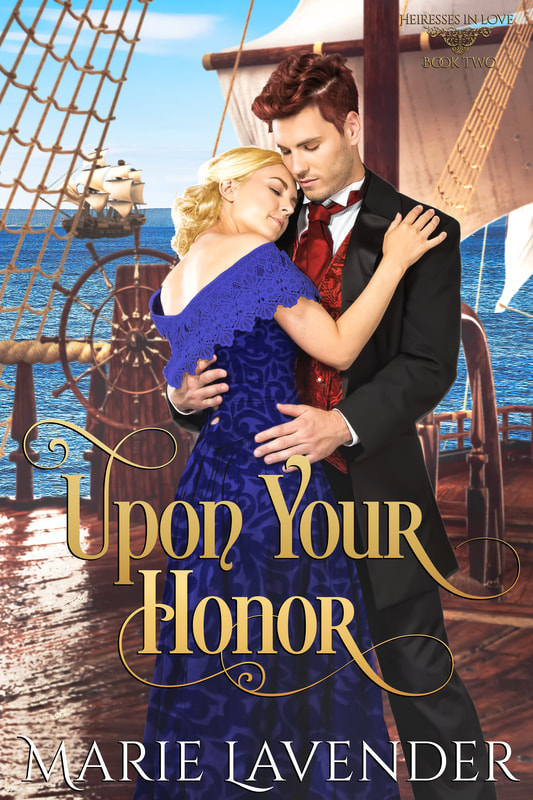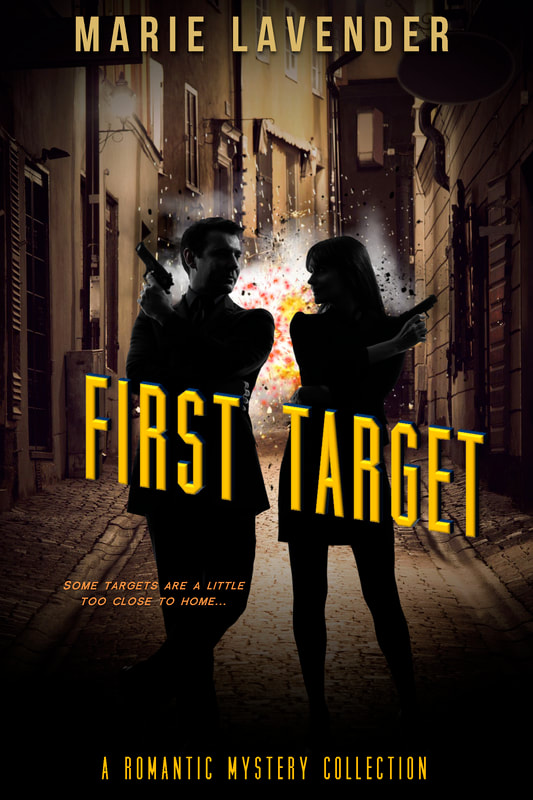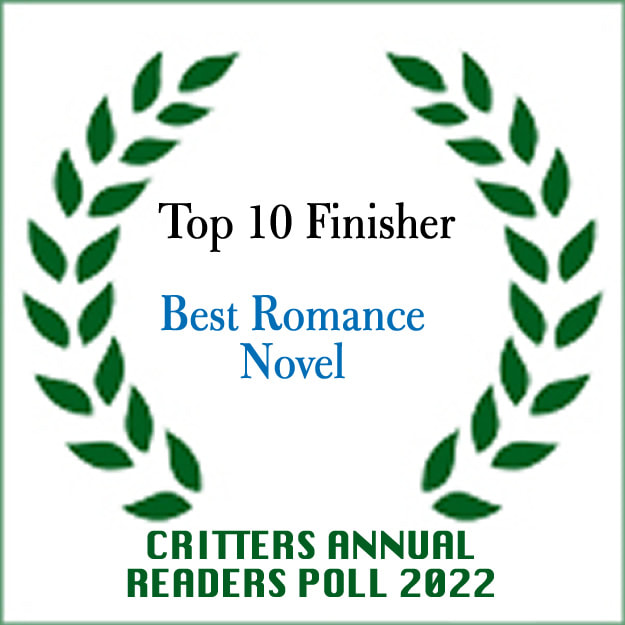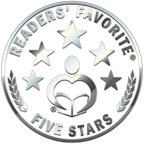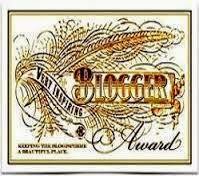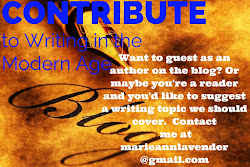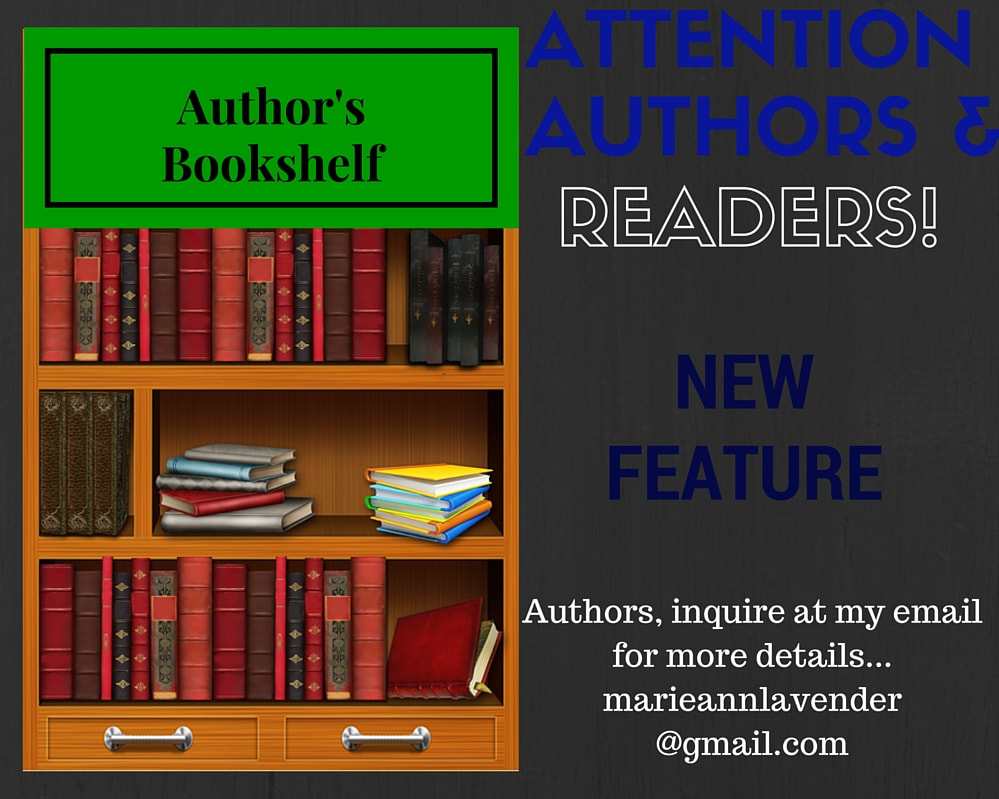|
For this year, I wanted to commemorate a special occasion. The Writing in the Modern Age blog has been running for ten full years! Woo hoo! That’s great! We’ve come such a long way. So, to celebrate, I thought I’d look back at the very first post, which was featured in March of 2013. It was written by Stefan Vucak and titled "Practical Advice for Beginning Fiction Writers". Feel free to view the article in full here. But it also ties in to today’s post, as I’ve gone to the trouble to ask for advice from 47 different authors. I wanted to take what they’ve learned and help other writers at various stages in their careers. It’s also how we’re marking the ten-year anniversary on the blog this month. By the way, this year, I’ll be shifting the WritModAge blog into taking on less guest posts and interviews (or none for a while, since I’m so swamped with other work), and doing more of my own articles about writing instead. However, I will still run occasional group events such as this, or even host big book giveaways. But I just thought that posing a big question to some of the authors who donated to previous events on the blog would be a great way to mark our ten-year reunion. Here are some of the previous multi-author features in which other questions were asked of various participants. https://marielavender.blogspot.com/2015/04/what-does-inspiring-mean-to-you-by-lois.html https://marielavender.blogspot.com/2015/08/why-do-we-write-250th-anniversary-multi-author-special-event.html https://marielavender.blogspot.com/2016/11/what-does-your-writing-process-look-like-special-multi-author-blog-event-and-350th-anniversary.html https://marielavender.blogspot.com/2019/06/500th-anniversary-do-authors-read-while-writing-multi-author-special-blog-event.html As you’ll likely surmise, back in 2022, I changed the blog’s domain over to https://writinginthemodernage.weebly.com/. I will eventually shift all the posts to this URL, transitioning them until I can close down the other blog. I will still have a splash page there for fans who don’t know about the big move. However, to properly display each participant’s answer today, I’m listing their preferred genre/genres to write in, the advice they’re offering, as well as some links where you can follow their published work. 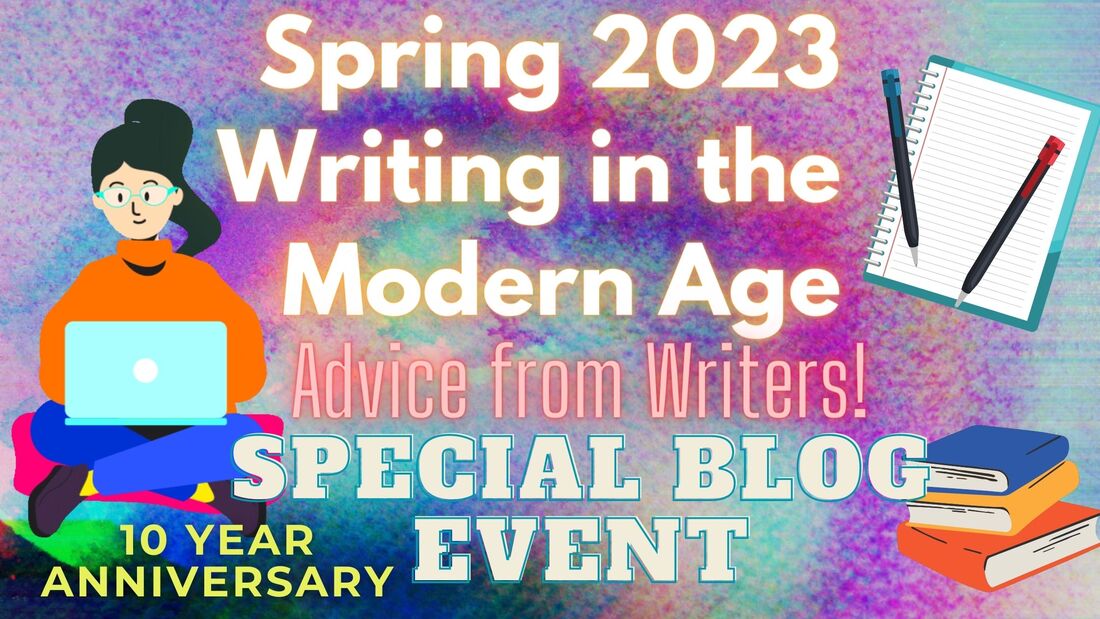 This is the big question I’ve posed to them… What top five pieces of advice (lessons or tips) would you offer to another writer in your specific genre?Without further ado, let’s see what they said. Author Participants and Responses to the Main Question 1) Judi Getch Brodman Genres: I write in a number of genres: cozy mystery, time travel/mystery, historical romance, romance, and many times, I mix and match these genres as I write. My love of the writing process, the creation of a story and its characters, keeps me writing story after story. Advice: First, you need to want to write... to be dedicated to your writing. Writing is hard work; good writing is almost impossible. It is time-consuming and isolating. Second, you need to learn to write. What does that mean? Join a writers group, listen to other writers and learn from them, from their writing and from the constructive criticism of your peers. I joined one early on and learned so much from them all. I will be forever grateful to this group. I also took an encouraging creative writing class. The professor urged me to continue my writing because I had, as she called it, a unique voice and writing process. Third, after I said all that, anyone can write, string words together. You can sit down, write 50K words and feel as though you have a book. Well, you don't, not one that a publisher will touch. When I said above, "good writing is almost impossible", I meant it. Good writing comes after many drafts, much editing, and many revisions. This is where your story comes alive... here you polish it by working on words that best tell the story and fit the character, by making dialogue meaningful (this is very important), removing errors and misspellings, and by creating a story that will capture the reader. Fourth, create interesting, three-dimensional characters. I learned this from a workshop I took given by a writer whose books I loved. No one wants to read a story with ‘flat’ characters. You, as the writer, need to know their backstories, what’s in their ‘bag of rocks’ that they carry with them, what their secrets are… what’s in that box under their bed. You may not put all that information into the manuscript, but you will use it as you write, trust me, and your characters will come alive. Fifth, do your research! If you are writing a time travel back to the 1800s, know what it was like to live in that time. One of my favorite books, The Looking Glass Labyrinth, was a time travel back to 1804. As I wrote, the story evolved into a mystery within a mystery with a beautifully layered romance. I won’t say much more except that I spent hours and hours doing my research on sea captains and their trade routes, on how women were educated and treated culturally, the fashion and family dynamics. The research fascinated me and although I didn’t use it all, I felt I knew my characters well enough to tell this beautiful story. Remember, your readers are smart, and if you make errors in history or anything else, they’ll notice, put the book down and not trust your story telling ever again. I could go on and on, but Marie asked for only five points. My advice to all -- enjoy the process of creating and writing! I’ve passed my love, my passion for writing, on to two of our little ones, eleven and nine, who wrote every word of their first book, Two Mice and a Train, and I published it. What a huge accomplishment for them! May their imagination fire many more. One of the keys to their writing was that they are both avid readers and LOVE stories. Links: https://tinyurl.com/JudiGB https://judigetchbrodman.wordpress.com/ 2) Jane Riddell Genres: commercial fiction, somewhere between chick lit and literary; humor Advice: 1. Research locations/topics raised so that your story is plausible. 2. Use fresh language, avoiding clichés, unless they are part of a character's way of talking. 3. Don't overexplain, but avoid confusing the reader. 4. Leave room for the reader's imagination. 5. Use subtext in the dialogue. Links: http://JaneRiddellquietfiction.com https://www.amazon.com/stores/Jane-Riddell/author/B00B9E4ABQ #JaneRiddell 3) Natalie Silk Genre: Science Fiction and Alternative History Advice The greatest advice: Don't stop the dream. Link: Amazon Author Page: https://www.amazon.com/stores/Natalie-Silk/author/B00EA8VY76 4) Giulietta M Spudich Genre: Young (Middle Grade) Fantasy Advice:
Links: https://medium.com/@elementgirl https://www.amazon.com/stores/Giulietta-M.-Spudich/author/B008D2MSTS 5) P.T. Macias Genres: Dark Alpha Romance, MC Romance, Mafia Romance, Paranormal Romance, Military Romance, and Contemporary Romance Advice: What top 5 pieces of advice (lessons or tips) would you offer to another writer in your specific genre? 1.Write, Write, Write! 2. Research 3. Edit 4. Promo - ARC Team 5. Reviews are constructive criticism. Links: Amazon https://www.amazon.com/author/ptmacias.com Facebook https://www.facebook.com/P.T.MaciasAuthorPage Newsletter Sign up P.T. Macias Legacy Romance! Author's Official Website 6) J.R. Wirth Genre: Suspense/Thriller, some supernatural magical realism Advice:
Links: www.facebook.com/Author.JRWirth http://www.amazon.com/J.R.Wirth/e/B00R9SDSR8/ 7) Kathryn Troy Genres: Fantasy/Romance/Horror Advice: Tip #1. Write for pleasure. If you write for what's hot and trendy in the market, chances are by the time your book gets published, it will be out of fashion. Write what you want to read, and you'll always be in style. Tip #2. Don't take it personally. Rejections from agents, editors, presses are NOT evaluations on your writing skills. They're just not. There's a lot of poorly-written books out there that make millions, and masterpieces that never see the light of day. Being published cannot be equated with quality. Tip #3. Read broadly. The more you read in your genre (and others!), the more exposed to other ideas, concepts, and tropes you are. That will make you a more informed and potentially more unique storyteller as you develop your own voice. Tip #4. Don't self-reject. We all have doubts. We're all not sure if our writing is good enough, if it's a good fit for this agent, that publishing house, whatever. But you never know. You can't make it if you never put yourself out there. Tip #5. Don't be afraid to try something new. Just because you haven't seen anything out there like what you're writing, that doesn't mean there isn't an audience for it. Not EVERYTHING is like something else. If you've got a story to tell, then tell it. Links: kathryntroy.blogspot.com @Bathoryscloset 8) Leigh Podgorski Genre: I am being published now as an Oracle Card creator, and love doing it. My preferred fiction genre remains metaphysical work that delves into our spiritual aspects as humans. My writing is eclectic: historical novels, literary fiction, and mysteries-- not of the whodunit, but more mysteries that arise thru one's life journey. Advice: 1. Apply the seat of the pants to the seat of the chair. Best advice I have ever gotten which, to copy Nike, means 'Just do it'. 2. Whether you outline or simply scribble notes: know where you are going. I know many writers have said they just write, but I don't think that works best to create a fully realized piece. By thinking your work through, you can add foreshadowing and much better character development. 3. Characters! Reader's often fall in love with the characters you create. So create well-rounded people that jump off the page. Make them real. Many-faceted. Engaging-- yes, even, especially your villains. 4. Listen to your quiet voice within. Let it guide you. When your characters speak to you, and they will, listen and heed. 5. Yes, Virginia, GRAMMAR MATTERS! I have read so many posts that eschew grammar. Eschew it at your peril. Grammar is your essential tool, your building blocks. If you didn't learn it, do it now! If you send a query with bad grammar, guess where your brilliant work ends up? The round file. Links: https://tinyurl.com/LeighPodgorski1 www.VioletHillsProductions.com 9) Edita A. Petrick Genres: Multi-genre – I write mysteries, sci-fi, romance, romantic suspense, thrillers, and even cozy mysteries - plus I ventured into YA fiction as well. Focus of Advice: Mysteries/Thrillers What makes for an un-putdownable mystery? There is a huge amount of advice floating out there, on writing and publishing. At times, it’s not just overwhelming to read through a few of these types of posts, but discouraging. How do you decide? How do you choose? Did you make the right choice—for anything, anyone? What makes for a riveting read in the mystery genre? A question as big as the genre itself. Forget the classics. They will always stand in a category of their own. You can’t compete with Agatha Christie or Dickens or even the bevy of ghostwriters who fleshed out the Nancy Drew and Hardy Boys stories. The first thing you need to understand about mysteries is very simple – do you like to read them? If so, go ahead and plunge into the genre. If not, you may try your hand at crafting one story, but that won’t spark your writing spirit. Your writing must run parallel to your interests in reading. You cannot force a mystery out of you, if you switch channels the moment one of the hundreds of police-thriller-action movies comes on. Let’s say you like reading mysteries, and you like watching any and every show dealing with any kind of a mystery—whether it’s fictional or documentary. So—what makes for a riveting mystery? Some will tell you it’s the story that the readers must find compelling. That may hold true for about ten percent of time the reader spends reading your blurb. Some will tell you it’s the twists and turns and cliffhangers in the story that will capture the reader. That accounts for another ten percent of time the readers may spend figuring out whether they like your cliffhanger or not. But what really creates a riveting read is the story’s character—or characters. That’s where you should spend your time and energy—crafting larger-than-life, quirky, colorful, little bit insane, little bit crooked and a little bit plain, dark characters to lead your story. You can have it if you can craft one strong enough to carry the whole mystery for three-hundred pages, or you can have two or three supporting characters to help your main protag to carry the story. Do you need an equally larger-than-life victim? No. Victims may be as colorful or as bland as you like them. It’s the motives and motivations that saw them depart this mortal plain that makes any victim interesting. What you should not have is an average character, delivering average lines of a decent mystery, because the reader will not get past the average character to appreciate the complex and riveting mystery plot. To me, average means real-life as it runs for normal people, not reality show stars. Look around your circle of friends and relatives. Which one of them do you like – and most importantly, why? Once you answer that question, you will have a template for your character. Then write down at least three attributes for that character that closely mesh with the real ones of the real person. And finally, make that character larger than life. Way larger. Corrupt something in the sterling character; twist something in the protagonist’s otherwise honest approach. Craft the flaws so you can tie them to the psychological aspects of that character. To do that, you need to ask yourself for each of the points considered: What if…? What if the trait you like him for was just a little bit…smudged, a little bit off-key, a little bit non-conforming. That’s what will give your chosen character his or her color. It’s our flaws that make us interesting to others, far more so than our virtues. It’s how we cope or hide such flaws that makes for a compelling reading. And finally, you can inject a bit of mystery into any genre—whether it’s romance, or sci-fi or adventure or action. Often, it will make what would have been an otherwise straightforward plot, into a labyrinth. Links: https://twitter.com/BoniEdita https://www.amazon.com/stores/author/B002BMI57U 10) Stefan Vucak Genre: Contemporary drama/thriller/politics/military Advice: Individuals write for many reasons, but I suggest all want to see their work reach a broad audience. The bonus, of course, is to be accepted by a literary agent and a major traditional publisher. It can happen. Many writers wonder why a poorly written book gets into a bookstore when theirs is so much better, but cannot be accepted by an agent or publisher. We can only scratch our heads and keep writing. Suggestions to writers? There are as many tips as there are writers, but I’ll risk repeating some of them anyway. 1 – In my opinion, to be a writer requires that he or she has that peculiar fire of creation burning inside that compels the individual to write, create new worlds, and share with readers their visions. Without that fire to carry the person through trials of procrastination, rejection, mental blues, frustration, the person will give up and concentrate on their day job to survive. Of course, some wannabe writers start a novel with bubbling enthusiasm, but when hard writing is required, or a new idea flashes into their minds, the work is abandoned in pursuit of that idea. In the end, nothing is achieved. So, if you don’t have that fire and desire to create, better take up golf instead. 2 – As with every profession, discipline is a must if anything is to be done. It is the same for any wannabe writer in whatever genre. Writing takes time, as does editing and proofreading, and a writer must be prepared to spend many days and months alone pushing that manuscript until it is done. For many, ongoing work and family commitments may not give a writer enough time they would like to pursue that novel. Nevertheless, a planned, disciplined approach that schedules a dedicated hour or two during the week and weekend to writing is a necessary step if that book is to be done. For those who can write full-time without the burden of holding down a job, discipline is equally important, as hours, days, and weeks can be whittled away in unrelated activities. Before you know it, months have passed with very little writing to show for it. A writer should set up a routine and a schedule devoted to writing time … and stick to it. 3 – In the contemporary genre -- and this applies to just about any genre -- research is a multi-pronged hook on which the author rests the book’s credibility. Getting historical, political, geographical, scientific, and other facts is critical to establish legitimacy and confidence in the reader’s mind, without which the book will be treated with the disdain it deserves. Social media and various internet search engines are invaluable tools for gathering information. However, the ‘buyer beware’ caveat applies. Search engines can dredge up many responses to a query, but an author should verify the supposed ‘facts’ from several sources to establish legitimacy. I suggest it is particularly important to validate scientific information that supports an author’s premise or hypothesis. There is nothing worse than having a reader cringe when coming across a glaring factual blooper because the author relied on his or her memory and did not bother to validate something, or have some outlandish space drive that flies in the face of current theoretical science. Although for any research a writer may delve into for a book, most of it will never be in the book itself. However, that is not a bad thing, as the wealth of information a writer uncovers provides a solid background, framework, and confidence for a writer that he/she is a subject matter expert, and that confidence will flow into the book. 4 – Having reviewed a library of novels, one thing manages to always stand out – a book that has been thoroughly planned and plotted, and one that seems to be written and made up as the author went along, allowing his/her characters and plot to evolve without any direction, or toward an ending the writer cannot wait to reach. There are numerous articles that argue the benefit of writing a detailed outline, and there are articles that suggest an outline is a waste of time. For a short story, I suggest a couple of dot points might be sufficient, or perhaps not. It all depends how clear the story is in the writer’s mind. For a major project such as a novel, I would argue the necessity for a detailed outline before the writer puts down the first word. No one would build a house without a detailed plan. In the same way, a disciplined, professional writer should not begin to build that novel without a detailed outline. An outline does several important things. It provides, or should provide, a profile for every major character, a clear set of plot and sub-plot steps, and a means to avoid that dreaded writer’s block because the author comes against a wall in his/her story and does not know how to get over it. Walls will come up, but they should be very small ones easily negotiated. Writing a detailed outline takes time and effort, but I suggest it is time well spent and avoids heartburn later. 5 – Writing a contemporary genre book intended for adults, or any book, establishing credibility and plausibility is critical to gain reader acceptance. An outlandish hypothesis or premise that is unsupported by historical, current, or plausible near-future events guarantees the book’s rejection. Contrary to some opinions, readers are savvy and don’t have much tolerance for what I call 'pulp trash'. Sadly, this is something a number of famous authors have forgotten, allowed their fame to swamp good writing and storytelling, and descended into producing trash that would never have gone past a literary agent’s or publisher’s slush pile were it not for the author’s name. I suggest this is death for any author, established or not. Once he or she produces such a novel, readers are likely never to pick up another of their work. We all like to read a thrilling, compelling book that has real characters set in a realistic story, evokes emotion, and gets us thinking. If a wannabe writer likes to read such a novel, it means that he or she should do their utmost to produce such a novel themselves. Readers deserve the very best we can give them. Settling for less is betrayal for the writer and reader. How to produce such a novel? Well, I could write a book on how to do it, but that’s for another day. Links: https://www.stefanvucak.com https://www.amazon.com/stores/Stefan-Vucak/author/B005CDD1RY 11) Holly Bargo Genre: Romance Advice: 1. Especially if you self-publish, hire a professional editor. Nothing dooms a book faster than a poorly written story riddled with errors. 2. Do your research. Verisimilitude is paramount to suspend the reader's disbelief, so don't guess at those realistic details, make sure they're correct. 3. Use active voice more than passive voice. Passive voice has great impact, but only if used in moderation. 4. Let your verbs do the heavy lifting. You're not writing an academic treatise, so engage your readers with strong, powerful verbs. 5. Explicit scenes should be natural to the progression of the story and the development of the protagonists' relationship not gratuitous. It's the story that engages readers, not the sex. Links: https://www.amazon.com/stores/Holly-Bargo/author/B00JRK6VGQ https://www.facebook.com/HollyBargoBooks/ 12) Dee Thompson Genre: Women’s Fiction Writing is my passion and I write every day. I earned an MA in Creative Writing and I have worked as a freelance writer, a journalist, and a paralegal. I currently work as a freelance writer. I have published four novels on Amazon. I have been writing a blog, The Crab Chronicles, since 2005. Advice: 1. End every chapter with at least one question, so the reader will want to keep turning pages. It doesn’t matter what category your novel falls into, readers need to be left wanting more. Always withhold information until the right time. 2. Once you’ve finished your manuscript, get beta readers to read it and give you useful feedback. You will need constructive criticism, not just 'I really liked your book'. You need someone to say things like 'Why did that character not say anything during the scene?' and 'You overuse the word “ponder” Get a thesaurus.' I have a close friend who is great about doing that for me, and it has made all my novels better. [There’s nothing wrong with hiring someone to help too, though, if you can afford it.] 3. Outlines are not always necessary. I was told over and over I HAD to outline the entire book before writing a word and that was too daunting a task, so I just didn’t write, for years. I hate outlines! However, if I start writing with a general idea of what I want to happen, then happy accidents occur. In my first novel, Ghosts in the Garden City, I started off thinking the mother was just a horrible person, but as I was writing her, I enjoyed it so much I softened her a good bit, and made her more integral to the story. I wasn’t chained to an outline, which worked in my favor. 4. Resist the urge to make everyone really beautiful or handsome, even when you’re writing romance. I get very bored quickly, as a reader, with a bunch of perfect looking people. Characters are much more interesting if you can say things like “he was losing his hair, but it didn’t matter to me because I loved his voice,” or "Scarlett O'Hara was not beautiful, but men seldom realized it when caught by her charm as the Tarleton twins were" – from Gone With the Wind, a famous novel that sold millions of copies. 5. Do your research! I get so irritated, as a reader, when I read something just blatantly wrong. I read a book the other day where someone was typing and made a mistake, and used liquid paper to correct it – but that wasn’t available until 3 years later! That is so easy to check on. Grrr… Links: https://dethompson62.journoportfolio.com/ https://deescribbler.typepad.com/my_weblog/ 13) Bernard Foong/Young Genre: Memoirs/Autobiography Advice/lessons: 1) Be truthful to yourself. Let your storytelling flow from the core of your being rather than plagiarize works from other writers. Allow your candor to glide rather than force. Write like you are downloading something divine and you are the messenger to deliver your piece of valuable information to the world. If you allow yourself to achieve that, you’re close to being a successful author. 2) Edit your writing until you are satisfied with your work. Even then, it is advisable to solicit the assistance of a professional editor to go through your writing. Often, an excellent editor will rephrase and shorten sentences/paragraphs to enable your writing to flow with ease and erase repetitiveness to the narrative. 3) Proofread your writing several times. This will ensure no hidden mistakes such as spelling corrections, story flow, and other missed errors. 4) Don't be repetitive. The author only has to iterate a point or emphasize once. Otherwise, your reader will be bored reading the same message over and over again. 5) Reading an excellent book will transport the reader to distant realms, to lands far away where his/her imagination can take flight and be transported to live the author’s experience/experiences. Be they factual or fantastical, these virtual experiences will bring insights and exposures to a larger world. Hence, all excellent stories consist of one or more moral lessons/insights that is/are relevant to the reader/readers in today's world. Links: Twitter: @bernardfoong Website: http://aharemboysaga.com/wp/ 14) Tony Flood PREFERRED GENRE THAT I WRITE IN: MYSTERY, THRILLER, SUSPENSE. I also write in other genres, including FANTASY and CHILDREN'S BOOKS and CELEBRITY REVELATIONS HERE ARE MY 5 MAIN TIPS/ADVICE: 1. If possible, use a really big 'hook' at the start of your book to grab readers' attention. For example, I start my crime thriller, Stitch Up - Killer or Victim?, with a murder occurring. 2. Ask people for their email addresses, and when you have a new book coming out, email them well in advance as well as just before the launch. 3. Offer potential readers details and a complimentary chapter from your book. 4. Use Facebook regularly and reply to COMMENTS because one COMMENT is worth 50 LIKES. 5. Provide information which should interest people on specialist websites. For example, I give interesting facts about Elvis Presley and Kylie Minogue, who are both featured in my celebrity book, My Life With The Stars - Sizzling Secrets Spilled. LINKS: https://www.celebritiesconfessions.com/ https://www.fantasyadventurebooks.com/ 15) Kim Lengling Genre: Non-fiction Advice: Five things to consider when writing non-fiction Every writer has a style and voice regardless of the genre you write in or may want to write in. Here are five things I like to keep in mind while weaving words together. Have access to the outdoors. Wherever you write, be sure there is a window, balcony, porch, or yard. Your brain needs rest just as your body does. So let yourself enjoy the view; who knows, that bird hopping around your yard, carrying around a worm, may be the inspiration you need! Be relatable. People want to relate to what they are reading. Can you remember reading something and thinking, "Oh yeah, I've done that!" or "That's happened to me too!." Your readers want to relate to you. Write as if you are sharing a story with a friend. Use emotion. Emotionally charged words capture your readers' attention by making them "feel" and want to continue reading. Build interest and trust. For example, can you insert joy, frustration, solitude, or a sense of accomplishment into your story? It doesn't matter if your book is about the mating habits of the Bilby or rebuilding a car engine; people want to feel. So take your readers on a journey. (Got you thinking about what a Bilby is, didn't I?) Provide a solution. Whatever the topic, provide tips or answers to your book's issue. For example, if I am reading a book on strawberry plants, I want to walk away knowing how best to plant and care for them, their different uses, and how to sustain healthy growth. But I want to learn more than just the basic steps of planting; I want to read what it feels like to see the plants grow and know a sense of accomplishment. Share the funny. Non-fiction doesn't have to be boring. Funny things happen to all of us or what we perceive as amusing. So share those silly moments in your book, whether a self-help book or a personal story; leaving your reader laughing out loud or bringing a smile to their face is high praise in my book! And hey, if you get the occasional snort out of them? Even better! Don't let self-doubt, naysayers, or procrastination stop you. Just start writing. Links: https://www.kimlenglingauthor.com/ https://www.amazon.com/author/kimlengling 16) Marie Lavender Genre: Multi-genre (various types of romance, mystery/thriller, fantasy, paranormal fiction, science fiction, urban fantasy, literary fiction, humor, dramatic fiction, and poetry); I’ve written tales for adults (so many) and younger audiences (1 children’s story and 1 YA) Advice: 1. Don’t corner yourself into one genre. Be open to trying something new and you will always have an endless flow of book ideas. 2. Save your politics for another forum. Honestly, no one cares how you voted and being upfront about it will only turn potential readers away. Save the politics for a more private circumstances – at home with your family, hanging out with your friends, or with whomever you trust. I promise that nothing good will come of stating your political views on social media, for all to see. It will eventually come back to haunt you. Unless it’s a situation that affects the whole planet and you know most people agree – such as the pandemic – it’s best to keep your own counsel. 3. Editing is a must! Do whatever you can to edit your own work. Consult articles by experts. Run a spell-checker. But go deeper as well, further than that. Hire a professional editor or ask a proofreader friend for help. Whether you’re self-publishing, or even submitting to a literary journal or a big publisher (or a literary agent), your book or story should stand on its own. Don’t give someone an excuse to throw your manuscript aside because you handed them a subpar draft. Do the extra work. Put in the effort of making your manuscript as clean as possible. Yes, we’re all human, and there may be a small detail you’ve missed along the way, but you wouldn’t want your published or unpublished work to be riddled with obvious errors. At least if other eyes are going to see it. 4. Take anti-technology vacations. This will give you a much needed break from the chaos of social media and the demands of being an author with a public image. It will also allow you to fully immerse yourself in your surroundings and spend time with your family or friends. Don’t surrender to the urge to keep checking your phone or email for updates. Stepping away will give you a chance to recharge your batteries, so to speak. Use your phone for emergencies, sure. But you're on vacation, by the way. DO NOT make everything worse by being obsessed with who said what online or posting a pic on Instagram. Also, don't feel guilty if you need more time and are forced to take a real hiatus. Burn-out happens. By avoiding the madness for a bit, you’ll feel more refreshed and ready to tackle any task when you return from break. 5. Try not to get discouraged. Just because one marketing method or tool works well for another author doesn’t mean it will work for you. There isn’t any one way or formula to get it done. Unfortunately, trial and error is par for the course and we all must go through the guessing game to get there. The same goes with being published. Rejections do occur, sometimes many of them. But this journey is your own. Your time will come. The best thing to do is just to keep going and learn from your mistakes. Oh, and don’t close the door to new opportunities that might pop up. Links list: https://linktr.ee/marielavender1 17) Stef Smulders Genres: short stories, humor, expat memoir Advice: 1. Choose the third person perspective, especially if you are a beginner. This way you avoid the most common pitfall, that of remaining in the head of the main character and so-called filtering (‘I saw…’, ‘I heard…’ et cetera). The majority of beginners automatically choose first person perspective, but I think you learn faster choosing the third. 2. Stay within the perspective you have chosen, at least within a chapter. It is very easy to forget this and switch point of view so be aware. Even experienced famous writers go wrong here now and then. Staying within one perspective allows readers to come close to and identify with the character much easier and this will definitely lead them to appreciate your work more. 3. Read a few books about writing technique, differences between types of perspective, the ‘show don’t tell’ adage, et cetera. Some of the ones I found very valuable are Understanding Show Don’t Tell (And Really Getting It) by Janice Hardy and Writing Fiction: A Guide to Narrative Craft by Janet Burroway. Both to read and reread! 4. Read a lot, in your genre and outside it. Once you start writing, you’ll be confronted with questions about how to solve certain problems, which solutions to take, and by reading the work of experienced authors, you’ll come across possible solutions. 5. Take part in forums, Facebook groups where aspiring writers critique each other’s work, such as Critique Circle (a whole list of possibilities you’ll find here https://blog.reedsy.com/critique-circle/). Links: http://italiaanse-toestanden.duepadroni.it/italy-expat-memoir-book/ https://www.amazon.com/stores/Stef-Smulders/author/B00OPVPTSS 18) Susan Lynn Solomon Genre: Mystery Advice: 1. Carry a writer’s journal with you wherever you go. Make notes about places, what people look like, and the way they dress. Note people’s body language when they speak to each other. 2. Set your stories in the place you live or places that you know well. Include descriptions of these places within your stories. The object is for readers who go to these places to recognize them. 3. When writing a mystery, put in a number of clues and several red herrings for your lead characters to follow, but don’t make these clues too obvious to the reader until near the end of your story. Agatha Christie once stopped a story after about 90 percent of it, and put in a page that, in effect, told the reader that if they’d paid attention and followed the clues by now, they should know who committed the crime and why. 4. Join a writers group. At meetings of this group, present a portion of your story. Make notes of comments made to your story and to the stories of others. Carefully consider each of these comments. 5. Do research. Even fictional stories need to be accurate—almost half of my writing time is spent doing research. For example, if a person is shot, what kind of weapon was used—not just whether it was a pistol or a rifle. If a pistol, was it a luger; if a rifle, was it an AK 47? If a person is poisoned, what poison was used? How long before death did it have to be administered? How was it administered—in a drink or by injection? Links: Amazon: https://www.amazon.com/Books-Susan-Lynn-Solomon/s?rh=n%3A283155%2Cp_27%3ASusan+Lynn+Solomon Facebook: https://www.facebook.com/susan.solomon.33 19) Karina Bartow Genres: Mystery and Romance Advice: When I started writing mysteries in 2012, I had many insecurities about it. Mysteries weren’t my preferred genre to read, yet I had one forming in my head, eager to leap onto paper. Eleven years later, I’m hooked on crafting tales with intrigue and sleuthing. Here are some lessons I’ve learned along the way. Five Tips for Mystery Writers: 1. Early on, decide what you intend your readers to know about the villain and his/her motive. Some stories give a peek at the crime and/or the reasons that lead up to it, while others leave their audience in complete cluelessness until almost the last page. There’s no right or wrong here, but choose whatever best fits your style and determine how often you want to switch perspectives. 2. Don’t wait too long before the crime takes place. During my first few years of composing mysteries, I liked to set up the characters and such before I brought in the case, usually at the end of chapter one. As I shopped my second mystery novel, however, a publisher counseled me to address it earlier, even if it’s just a hint about what mayhem is coming. You might do this in the form of a distressed phone call, threatening letter, or the like. 3. If you don’t know who the perpetrator is, don’t worry! Sometimes, your own puzzlement can work to your advantage. After all, if you can’t figure out whodunit right away, how will your reader? Once you do, you can go back and add breadcrumbs if you wish. 4. Be selective about with whom you share your work. This goes for any genre. When you start out on your writing journey, you may be tempted to let anybody and everybody read your manuscript. That can get tricky, though, because everyone has their ideas about your book. If it’s unpolished in the first place, they’ll likely point out flaws you probably would’ve caught sooner or later. You definitely should have someone else look at it before you submit it for professional consideration, but you can spare yourself a lot of frustration and perhaps discouragement by choosing the right time and person. 5. Don’t give up! Whether you’ve hit writer’s block or are fielding rejection after rejection, keep in mind that many authors, past and present, have encountered the same challenges. With patience and persistence, they’ve triumphed, and so can you! Links: https://www.KarinaBartow.com https://www.goodreads.com/author/show/15045283.Karina_Bartow 20) Kayelle Allen Genres: Science Fiction, Science Fiction Romance, MM Romance Tips/advice/lessons: 1. Question the premise of advice. Advice is given through the lens of the giver's experience, ability, and personal strength. For example, you might not be the type who needs to write every day. And contrary to the popular saying, some people can indeed edit without words being on paper or screen. Some have to spend a long time thinking before writing. That is still writing. And why must everyone "write to market?" The answer is, they don't. We are not all the same. Writing to market is not the only avenue to success. Figure out what works for you and stick to it. No piece of writing advice fits everyone. 2. Information about how to write or market is out there. If you need to know something, chances are, you can find it online. Some of the best workshops I've taken have been free for signing up for a newsletter. No one knows it all. There is always something you hadn't thought of, or until now, didn't understand or need. Go find someone who knows the answers. You might discover the answers to other questions you didn't know enough to even ask. 3. Take the free course Starting From Zero by David Gaughran and sign up for his newsletter. You won't get a hard sell or pressure to upgrade or go premium and buy things. He gives you everything you need at no cost. Plain, simple, easy to understand. I can't tell you how revolutionary his advice has been. Using what he taught me, I had a 650% increase in sales in one year. 4. Using David's advice, I read and re-read Newsletter Ninja by Tammi Labrecque. The biggest takeaway was to get to know my readers. I do that by asking questions in my newsletter and then when readers respond, I do my best to continue the conversation. When I write now, I'm thinking of specific readers and gearing material toward what they've told me they want to know. It's called getting to know your audience. There's no shortcut to spending time talking to people. I'm a major introvert, but I can talk to people online via email. I love writing my newsletter now, because I'm writing it for people that I'm getting to know. 5. Last piece of advice: Be who you are. Do not sugarcoat your identity. Those who flock to you when you are being your authentic self will become your tribe. And with a tribe, you can accomplish anything. Links: Website: https://kayelleallen.com Kayelle's Keepers: http://facebook.com/groups/KayellesKeepers 21) Debby Grahl Genre: Romance Advice: 1. Take writing classes. These are extremely helpful in learning about changing POV, character development, dialogue, punctuation, editing, and more. A number of online writing groups offer these classes at a reasonable price. 2. Research. Doing your research on your story is very important. Make sure the dialogue, setting, clothing, and characters' actions are true to the time period of your story. This is especially true in writing historicals. 3. Location. When you choose your location for your story, be sure to once again do your research. Trust me, if your story takes place in New Orleans and you have a hotel or restaurant on the wrong street, a reader will let you know. 4. Conferences. Writer conferences are a great way to meet fellow writers, take advantage of informative workshops, and pitch your story to an agent or publisher. I find I enjoy smaller conferences more than larger ones. They have a tendency not to be so intimidating and the cost can be more affordable. 5. Critique groups. Joining a Critique group is a great way for authors to bounce their ideas off other authors, read parts of your manuscript for advice and come up with story ideas. They can also be a wonderful support group. Links: Amazon Author Page: https://www.amazon.com/Debby-Grahl/e/B00B34HM26 Bookbub: https://www.bookbub.com/search/authors?search=debby%20grahl 22) Diane Bator Genre: Mystery/Cozy Mystery Advice: 1. Write what you would want to read, not necessarily what is trendy. Trends change constantly. 2. Don’t give up. 3. If you want to publish, do your research! 4. Find like-minded people to learn from and write with. 5. Don’t think you need to set aside hours at a time to write. A lot can be accomplished 15 minutes at a time. Links: Website: https://dianebator.ca/ Blog: http://dbator.blogspot.ca/ 23) Dr. Bob Rich I don’t have a specific genre. If you try to stuff my writing into a box, you will end up with it leaking all over the place. So, I’d like to step outside the box and leak out five principles that guide my writing when I am not looking (they are terribly shy and will hide if I do look). Advice: 1. Life is too short for the seriousness it deserves. I have already illustrated this. One of my current projects is a book on grieving. I have bits in there to make you laugh. Same is true for my book, From Depression to Contentment: A self-therapy guide. You see, it takes extreme effort to stay miserable while laughing. I don’t write horror—real life is horrible enough—but inevitably, my fiction needs to have horrible events in it. Even then, a laugh will liven it up. One of my current novels-to-be starts like this: “Looking in the mirror, Bill saw the weapon point straight at his back. The thought came: I’m only a kid; too young to die!” Since this is the first two lines, it’s obvious that he managed to escape. A few minutes later, he is telling his sister about it. His way: “I mustn’t drag her down into my worry pit. I know, a tease will lift both of us.” It does, and lifts the book, too. 2. Pecking at a keyboard is recording. The writing happens while I do other things. I refuse to tell you about this here. Why should I, when I have a perfectly good post that does so? http://wp.me/p3Xihq-Lx And you can read a recent little essay that illustrates how this works: https://wp.me/p3Xihq-2ME 3. Purpose and passion without preaching makes for perfect. I hope you appreciate alliteration. A cookbook has recipes. A self-help manual gives advice on how to improve in some way. A novel is meant to entertain. A kids book should teach in a pleasurable way. There are gazillion books of each of these types that are read-once-and-forget. Occasionally, though, you come across a keeper, which you will read more than once, and recommend to others. You will find yourself thinking of it months or even years after you’ve read it. These are the books written with passion, from a deep conviction, intended to make the world a better place. This is fine, but I now give you three guesses: what should you avoid when writing such a book? One of my current projects is Jolanda’s Kitchen Magic. My wife is a champion cook, and our grandchildren have inherited the interest. They love getting recipes from 'Oma'. So, she and I decided to collaborate on a cookbook for them. You can read the first installment here: https://wp.me/p3Xihq-2Mv It’s a recipe. It’s fun. But if you read behind the recipe, it is also a recipe for sustainable living. If I have my way, this book will be a keeper, read for much more than the cooking content. 4. Every sentient being is an apprentice Jesus; an apprentice Buddha. How does an apprentice learn? By following one or more masters, and by making mistakes and learning from them. The Dalai Lama is one of my masters. He says, “The aim of enlightenment is to be of service,” and “My religion is kindness.” We live at the best time in human history, and the worst time. This planet is officially in its sixth major extinction event, and, for me, this overshadows everything else. I can no longer be bothered to read or write anything that is unrelated to saving a tomorrow for today’s youngsters, and a tomorrow worth living in. Join my team. In one way or another, make the passion and purpose in your writing a tool for creating a better world. If you write romances, fine. But you can invite generosity and compassion and decency to peek out from between the lines. 5. Fiction is magic. Again, I have a perfectly good post on this at https://wp.me/p3Xihq-1ag so, being a good conservationist, I’ll recycle it rather than reproduce it. Links: Bobbing Around blog: https://bobrich18.wordpress.com Book List: https://bobrich18.wordpress.com/bobs-booklist/ 24) Amber Daulton Genre: Romance Advice: 1. Read books in the genre you want to write in to better learn the genre norm and wrap your own writing style around it. 2. Don’t be a diva. Unless you’re a multi-published author with a legion of fans, several years of writing #1 bestsellers under your belt, and millions of dollars to your name, acting like a diva could kill your career. 3. Make friends with other authors. Social media, writing forums, and book clubs at your local library (if there are any) are good places to find like-minded people. For me, I’ve found most of my author friends via writing forums and publisher chat loops. 4. Take rejection letters in stride. If a publisher or editor gives you feedback on why he/she rejected your work, put aside your pride and listen to their feedback. It’s hard, I know, but accepting help or criticism with an open mind usually is. 5. Just keep writing. I know it sounds cliché, but there’s nothing else to do. If you don’t try, you won’t succeed. Period. Links: Want to stay in touch? Learn more and contact me on my website: https://amberdaulton.com Or join my exclusive newsletter: https://amberdaulton.com/newsletter-signup/ 25) KC Grifant Genre: Horror and Dark Fantasy Advice: 1- Create a habit of writing. Whether it’s a little bit every day--or a longer weekend writing binge every few months--try different methods until you find what works for you. Just like exercise, getting words down on the page every day or week will work that mental muscle until writing is second nature. Remember that it's fine if the first draft is terrible--it can always be edited later. 2- Guard against bitterness. I've seen many writers get frustrated at limitations: not having enough time to write, or money for conferences, or connections to publishing, et cetera. This is a dangerous path of thinking that can interfere with creativity. In addition to accepting your own writing path and not comparing yourself to others, connecting with fellow writers who positively lift up each other's work can help fend off bitterness. 3- Follow your instincts. Even if you think your story is unmarketable, too "genre-blending" or that no one would read it, you owe yourself the chance to pursue the idea fully. If you love the story, no matter how off the beaten path it is, chances are readers will as well. 4- Find your community. Are you a horror writer? Memoir writer? Perhaps you love short stories? Finding your writing genre or niche can help you to understand your craft better and will give you more tools to grow. Connecting with like-minded writers will also grant more opportunities to network. 5- Ignore imposter syndrome. Even writers who everyone would consider successful — who’ve had their works made into movies and shows, for example — still experience imposter syndrome. This can be especially challenging for new writers. Ignore it and get busy writing. Links: Website: https://scifiwri.com Amazon Author Page: https://www.amazon.com/stores/KC-Grifant/author/B01B3O66AY 26) Shannon MacLeod Genre: Paranormal Romance, Metaphysical reference, and coming soon - Psychological Horror Advice: 1. As any editor will tell you, adverbs are the devil. Many online dictionaries have email options to send you a new word to learn daily – do that. You can describe your drama queen heroine as lachrymose instead of weepy. Just remember there’s a fine line between great description and magniloquence (expressed in a lofty, pompous or grandiose style). You don’t want your reader needing a dictionary for every other sentence. Write for your intended audience, not to show off your vocabulary skills. 2. Read every chance you get. I do most of mine on my phone, standing in the checkout line, doctor’s office, et cetera. Read outside your genre; it’s amazing how many good ideas you can get. Keep a notebook WITH A WORKING PEN. I carry one with me literally everywhere I go to jot down interesting phrases and words, ideas. The amazing plot twist that woke you out of a sound sleep at 3 a.m. will be gone with the dawn if you don’t write it down immediately. 3. Read the blurbs in daily new releases to avoid clichéd characters/themes; some have been done way past their expiration date. Play with character traits/combinations. Your tortured hero is a recently discharged Navy Seal? Instead of dropping him in a motorcycle gang or making him a freelance assassin, take him out of his element. Maybe he opened a bakery, a dance studio or pet sitting service instead. The possibilities are limited only by your imagination. 4. Learn what literary tropes are and how to use them. There are dozens of good websites and books on this topic. I’m not saying more in hopes you’ll go investigate on your own. 5. Learn the readability guidelines for your genre and utilize the statistics tool in your word processing program. It is priceless in that it will also tell you how much of your written work is in passive voice (also the devil). I periodically do CTRL+F to search the word “was” to reword passive sentences whenever possible. Show, don’t tell. Each sentence needs to pull the reader to the next. Links: www.shannonmacleod.com Amazon.com: Shannon MacLeod: books, biography, latest update 27) Gil Snider/Judy Snider Genres: Children's books and Suspense Five Tips/Advice for Other Suspense Authors: 1. Watch suspense movies, read suspense books, and get a feel of "what works" in creating suspense. Hopefully you like/love suspense books so you really can create 'Oh, No, what is going to happen next?' for the readers. 2. I would recommend a brief outline of the book. I don't do that, I just start writing, but my husband likes an outline. See what works better for you. I get my ideas from things that happen in real life, and go from there. 3. Have a sheet of characters and details about them, their lives, friends, and come up with various names for them and your characters. You can always change a name. I ask my readers what cat or dog names to use, as I am a member of The Cat Writer's Association, so always put a cat in my books. 4. Join local or national writer's groups for education, inspiration, and to meet nice people. I do mine mostly online, but I am not great at zoom, et cetera. Find a good PR person/persons (Like Crystal/Marsha ) to spread the word about your book, and also radio shows or podcasts . I have met lots of great people who spread the word. Important! to set up a website that is professional, but also interesting. 5. I am not a good editor, so don't stop writing if you are not good at editing. Yes, learn to be a better one, but there are plenty of people who can do that. Also, for children's books, I cannot draw, so I found two great illustrators. One book I did with my sisters, and another with a group of women, so again, have fun doing this. Links: Official Author Website: www.judysnider.com Facebook: https://www.facebook.com/people/Judy-K-Snider/100063442886550/ 28) Stephanie Ellis Genres: Horror/Dark fiction and dark poetry Advice: 1. Read in the genre you wish to write in (as well as reading widely in genre). This allows you to not only recognize the quality you need to produce but to also truly understand the genre and not play to stereotypes. 2. Be selective in the advice you take! Don’t feel you have to do something just because others do, this leaves you measuring yourself against fellow writers and feeling somehow ‘less’. If you can’t do 2000 words a day, don’t! If you don’t want to plan/outline and prefer to simply write, do so! Find what works for you and don’t judge yourself. 3. Submit clean copy. The odd typo will always sneak through, but make your manuscript as clean as you can. Check spelling and grammar. Double check it against the submission guidelines – the latter is absolutely critical. 4. Don’t let rejection get you down. Easier said than done, but all writers will experience rejection and often on a regular basis. Acceptance rates are notoriously low, learn that it’s not always down to your work – it is very much a numbers game these days. Keep writing, keep submitting, and you will eventually achieve some success, as well as improving your work in the process. 5. Try and find fellow writers and build a small support network. This helps relieve the sense of isolation as well as providing you with a ‘safe space’ to ask for critiques and beta reads and writing advice. If you haven’t got a writing group where you live or it doesn’t offer quite what you want, check out the various groups on different social media platforms. (The horror community in general is very welcoming.) Links: www.stephanieellis.org www.brigidsgatepress.com 29) Dr. Roger Leslie Preferred Genre: Spirituality/Self-Help Advice: What top five pieces of advice (or tips) would you offer to another writer in your specific genre? Throughout my career, now approaching five decades, I have often learned glowing embers of wisdom that made me think, Wow! Had I known that before, my entire journey to success would have been much shorter and faster. Here are my favorites: 1. What you have to say is helpful. In any endeavor, I always encourage my followers and fellow seekers, “Take inspiration to action.” In so personal a genre as spirituality/self-help, it is very inviting to second-guess ourselves and assume we have nothing new to say. In my writing classes, I teach that there are only two stories told throughout history in every genre and medium. Somebody goes on a journey. A stranger comes to town. Then, what makes any book original? The author’s voice. Write your book with sincerity and conviction, and there will always be readers approaching that level of spiritual development who can benefit from what you say. 2. Bare your soul. For fiction and non-fiction, I encourage my writing clients to bare their soul in the first draft. No genre demands that kind of courage more than spirituality/self-help. Often, writers in this genre have suffered and overcome, the two ingredients for any great story. You must be willing to share the most painful details for readers to believe in your authenticity and trust you enough to use your wisdom as a guide for their own spiritual growth. 3. Readers benefit from your story more than your advice. Readers live vicariously through the books they read. Instead of offering advice, simply share with them your story. They will naturally find parallels to their own life and discover for themselves how your pearls of wisdom can benefit them. They will actually find more insights they read into your story than the bits of advice you would've thought they wanted to hear. 4. Invite readers to follow a journey. The greatest stories have the forward momentum of suspense. Spiritual exploration and personal development (self-help) usually begin with a crisis of faith that the writer had the courage to face head-on until they found new insights that brought them peace or revived their spirits. Journeys are the easiest to write. Begin with the struggle, the question, and then let readers follow your path as you work your way toward the light of new insight. The end of the journey doesn’t have to be a life-shattering epiphany. It only needs to suggest, for you and the reader, a sense of hope. 5. Raise the questions and let readers determine their own answers. Novice non-fiction authors often believe their book has to supply answers. For some subgenres, such as business or financial planning, that may be true. For spiritual/self-help, simply having the courage to explore the territory and traverse the terrain of what is for you uncharted spiritual exploration invites readers to trust their own path and follow their own spiritual guidance. Raise the questions and then share with readers the path you took in search of answers. Some of those answers might be shattering insights. Others might be glimmers of hope that revived your soul. Either way, readers will benefit from your courage, and most will be eager to read where your next questions lead you in subsequent books. Links: My Website: https://rogerleslie.com/ Facebook: https://www.facebook.com/DrRogerLeslie/ 30) The writing duo of Charles Breakfield and Roxanne Burkey Genre: TechnoThriller Advice: Foundation Like a building, a story starts with the groundwork. For us, selecting the focus of the thriller begins with identifying the proper threat or risk of technology. Without that premise, our cyber heroes versus attacks from the Darknet have no purpose. Our professional career illustrates that the benefits of technology outweigh the risks. We also find it only takes one conniving manipulator with programming skills and evil intentions to ruin it for the rest of us. We chose Identity Theft as the risk or problem in The Enigma Factor. We decided to ramp up the intrigue, making the attack's target a tech-savvy protagonist with family secrets he never heard from his mother. Readers get invested in navigating through the digital framework of the story with the character. The action includes twists, turns, and unexpected friends or foes, increasing the tension as the story progresses. The risks from misused or underestimated technology are real, so we slip security reminders into each tale. We know from experience the bad guys stay ahead in the technology race, putting the good guys in catch-up mode. Good tension gets created in this kind of environment. Balance Positioning threats or solutions using technology needs to provide enough credibility to the topic. Readers of fiction enjoy the twists, turns, and thrills, but often aren’t working in technology. People today handle more digital influence in their mobile devices than they often realize. Sometimes we go a little deep into a subject, inserting jargon like, “the rootkit allowed the virus to infect the operating system.” Folks shake their heads, thinking they went from an exciting thriller to a way to make plants grow more robust. You lost the audience. Different words provide a general way to say the same thing, such as “Jacob created a unique application, destroying the virus without ruining the data on the computer.” Situations with digital security are challenging to convey, yet do not get too confusing for readers. Years ago, Breakfield was having supper with the family. He regaled his girls with his day building a new digital network infrastructure using the associated jargon. His youngest daughter pulled on his sleeve, ‘Dad, we don’t understand what you’re saying, but we’re glad you like it." We strive to balance sharing actual knowledge while telling an exciting thriller. Suspense Elements of a story that alter a reader's feelings are critical to any fictional creation. Creating a journey with risky stops and turns along the way might include the computers running the financial programs for the bank going haywire because of a virus. These types of events often appear in the news. The rise of hackers, cyber threats, and creative programmers with malicious intent is rising. When you show the reader the impact of a situation on the character, the drama grows with each sentence. Our connected world opens the door to suspense across the globe, twenty-four-seven. You turn on your phone. An ad pops up which captures your imagination. You click the link, and in seconds, your bank account is compromised. That sort of activity is a reality, but we use those everyday activities to build the tension and get readers to grip the edge of the pages, hoping the hero escapes unscathed. Invoking reader empathy is the objective. In The Enigma Beyond, a computer uses the eyes of drones to gather information to locate the hero. The computer, named Joan, almost succeeds during a phone call using a synthesized voice during a conversation with the hero. Our protagonist yells at a machine and gets nowhere because a device has no emotions. Ah, exploring the benefit and threats of artificial intelligence provides excellent possibilities of where it might go next in our stories. Characters We use characters to highlight different elements of our story—threats or solutions. Technology rarely has a single programmer on a complex program. For example, some programs have multiple paths, making it easy to divide between numerous people for speed to market or security aspects. In some cases, the programming languages changed over time, then bolted onto some older programs like a digital Frankenstein. Co-authoring gives us an interesting perspective on people in our stories. We can help direct the dialogue as relevant to a specific character. We have extensive travel and exposure to multiple cultures, mainly where English is not the first language. We use these experiences in the location and people employed in the stories. Like many authors, our characters talk to us and take us in various directions. We plan to have the antagonist do one thing, then they decide to make us write it differently. The results for us can change the original thoughts on the story, but make it a better thriller. Characters, like people, have characteristics to make them multi-dimensional. That is vital in helping readers invest in rooting for the heroes to win or the cyber scum to earn their just desserts. What we find most rewarding is when people get invested in our characters. One reader remarked in a review about disliking a character who played an evil role in multiple volumes of the series, then recognized the person had grown and changed, becoming redeemable. Just like people we know, and you might as well. Conclusion In writing our series, we wanted to have each book stand alone as a great story. We also liked many of the characters and wanted them to grow as the series progressed. We wanted relationships to change, skills to improve, and families to grow. The R-Group is a family business that started during World War II with our stories in the contemporary digital world in which we thrive. Don’t forget to track the character’s genealogy if you have repeat characters in a series. Missed steps of character usage get spotted by loyal fans—they will let you know. The actions and choices of the characters take the problem toward an unexpected finish. Sometimes they are correct, but often they don’t see the solution until it occurs. We put breadcrumbs to follow to let them think or ponder about what happens next. Our story ends of the books in the series contain hints of more future technology threats to exploit, but not cliffhangers. We use those questions and suspense worries to move between chapters. Keep turning the pages to the satisfying end—that is our goal. We hope this helps you write your story or tell your tale in a thrilling, exciting, manner. Links: Visit Breakfield & Burkey at: https://www.EnigmaSeries.com And Rox Burkey’s blog: https://roxburkey.com 31) Kristin Kay Genre: Dark Romance Advice: 1. Break the stereotypes - always. The romance genre is overflooded with the same old stories retold. Create new female characters - strong, bold, and inspiring, like the women today. 2. Don’t be afraid to take risks and experiment with your writing to provoke readers' imagination and beliefs. 3. Not fitting in is the best you can hear for your book. Book publishing today is a huge marketing machine, so most of the writers aim to fit into a niche (from dark romance to super niched like biker romance). Not fitting into a box makes your story and voice unique. 4. Writing is the best possible way to self-discovery and self-healing. Enjoy the process, discover yourself, and have fun. Writing a romance novel should be a rewarding experience. 5. Celebrate all the wins - from the first draft of the first chapter to publishing day. It might not be easy at all times, but even the small wins matter. Enjoy the ride :) Links: My website: https://authorkristinkay.com/ My book: https://www.amazon.com/One-Contemporary-Romance-Awakening-Madness-ebook/dp/B0B6Q7XV7G/ref=tmm_kin_swatch_0?_encoding=UTF8&qid=1676723399&sr=1-1 32) Carole McKee Genre: Romance Advice: 1. Write! 2. Keep writing! 3. Read and reread what you have written. 4. Edit! Edit! Edit! 5. Don't give up! Rejections don't mean your work is bad. Keep trying. 6. When you write dialogue, read it out loud to see if it seems natural or flows naturally. Links: https://about.me/mckeecarole 33) S. Cinders Genre/Genres: Romance- Fantasy, Contemporary, Historical, Paranormal Advice: Write because you love the story. Write because the words simply won't stay inside of you for another minute. Write because your characters deserve a chance to be heard. Write because it's who you are and what you live for. Writing for fame, money, acceptance, or even in desperation, will never unlock the true potential inside of you. Links: www.scinders.com https://www.amazon.com/stores/S.-Cinders/author/B01M6WPKBS 34) Leslie Hachtel Genre: Romance (Historical and Romantic Suspense) Advice: 1. Do not quit! This is the most important advice since it's hard to write a book and then face possible rejection. The only way to lose is to quit. 2. Treat writing as a job. Do not think of it as a hobby that comes last in your day. If you want to be a writer, you have to write. Treat it as a priority. 3. Never compare yourself to anyone else. Your stories are yours and therefore unique. 4. You cannot edit a blank page. Write it, then you can edit it to make it better. 5. Don't set limits for yourself or be hindered by unhelpful criticism. If you have been writing in one genre, don't be afraid to try another one. And don't let others limit you. Any criticism that isn't constructive is just mean, so ignore it. When someone tells you you can't or you're not good enough, prove them wrong. Links: Website: https://www.lesliehachtel.com/ Facebook: https://www.facebook.com/lesliehachtelwriter/ 35) Linda Covella Genre/Genres: Children/Teens I’ve been writing fiction, non-fiction, articles for print magazines and online for over 25 years. The following is advice that has helped me with my writing, particularly when writing for kids and teens… Advice: 1. Read. Read. Read. Reading books in your genre can be super helpful. Read books that have won awards, that have a large audience. Read reviews of the books. What do you see that makes them successful? What do reviews highlight? Also, fundamentally, you should read adult books; read the classics. All these provide a good knowledge foundation for your writing. 2. Improve your craft. Writing is a craft, and it’s important to constantly be working to improve that craft. In college, I took creative writing classes as electives (my favorite classes!). Also, over the years, I’ve taken online writing classes that have been helpful. Just make sure you go with a reputable organization and/or instructor. For example, https://www.udemy.com/ has a variety of classes that are very affordable. 3. Join a critique group. For me, joining a critique group was one of the best things I ever did for my writing. At first, I was reluctant, nervous about putting my work out there for others to critique. Ultimately, I formed a group with a woman I met in one of my online classes. We created rules, interviewed other writers in our genre, and ended up with four other partners. We were scattered all over the country, and we communicated through email. I’ll mention here that if you’re writing (and/or illustrating) for children, you should join the Society of Children’s Book Writers and Illustrators https://www.scbwi.org/. There’s a wealth of information, and it’s one place to hook up with possible critique partners, either on their website or at conferences. 4. Do your research when querying. Whether you’re querying an agent or an editor, it’s important to research to find the right one for your genre and your story. Make sure to personalize your letter as to why you’re querying that particular person. Also, watch for scams. There are some publishers and agencies that may just be scamming for money, et cetera. This site is great for discovering those, and for a lot of other good information: https://www.sfwa.org/other-resources/for-authors/writer-beware/ and their blog https://writerbeware.blog/ for up-to-the-minute information and warnings. 5. Never give up! Really! The road to publication can sometimes be a long one. But keep writing, and when you’re ready, keep querying. If you’re lucky enough to get feedback from an agent or editor, take it seriously, as well as from your critique group. Criticism and rejection are hard to deal with, but raise your heart and your hopes up, keep writing, improving, querying, and someday your dream of publication will come true! Links: https://lindacovella.com/ https://www.amazon.com/stores/Linda-Covella/author/B00MBR9II0 36) Virginia Babcock Genres: contemporary and clean romance, Sci-Fi Advice: 1. Plot or not as you prefer. Some of us plot our stories before writing. Others think on the stories and write them after, some discovering the story as they write. Do what works for you! 2. Use beta readers who understand plot, editing, and grammar. Some readers give subjective opinions that are hard to act on. Though, if it’s a plot or storyline issue, listen and adjust. Any reader can diagnose a weak story. 3. Feedback is a gift. Whether a review, comment, or critique, feedback will make your story better. No feedback could be a sign that your story is beyond repair. Feedback means your story is fixable. 4. Have a marketing magnet—Something small and cheap that you can give to new readers. Tie it to the main place people can find your brand like your website or social. Make it if you can. You’ll need to put in hard work for things you can’t pay for. 5. Find a community of other writers. Support them and get support from them. Readers always need new stories and cross-promoting with authors like you will enable you to find more strangers who love your books. You can also find writing friends to share costs with you, like stalls at fairs, headshots, or advertising. Links: http://VirginiaBabcock.com @VirginiaBabcockBooks on Insta and Facebook @VBabcockBooks on Twitter 37) James Glass Genre: Crime Thriller Advice: 5 Links for New Writers https://www.jamescglass.com/creating-tension-for-your-readers/ https://www.jamescglass.com/dont-muddle-your-story/ https://www.jamescglass.com/interrogation-techniques-verbal-cues/ https://www.jamescglass.com/interrogation-techniques-part-twonon-verbal-cues/ https://www.jamescglass.com/targeting-enemy-words/ Author Link: Amazon Page: https://www.amazon.com/stores/author/B00B1XI25K/allbooks?ingress=0&visitId=17c64618-502b-42ab-9bd8-536fbaa8686c&store_ref=ap_rdr&ref_=ap_rdr 38) Lynn Chantale Genre/Genres: I write erotic romantic suspense with African-American heroes and heroines. From time to time, I’ll write Interracial couples and have ventured into characters with disabilities, primarily visual disabilities as I have one. Advice: 1. Write what you like — When I started as an author, it was to write stories with people who looked like me and lived in places I lived or would actually visit. And I wanted to see strong, independent women who could hold their own against a strong man. Of course, this led to secret baby stories or lovers who were afraid to trust one another. I like stories with intrigue, some romance, adventure, and makes you think. So I write this. I also like writing stories which involve second chances. 2. Promote Yourself — If you’re new to the biz, you’ll have to work a little harder. Even if you don’t have anything out, start getting your name out there. Join reader groups in your genre, do blog hops and posts, tweet, pin, make videos, hashtags, and interact. Even if you’re an established author, you will still need to do the same things to keep your name in front of readers and fans. The publisher does not have the time and money to devote to promoting you unless you’re one of those household names. :-) And even those big names do some of their own promotion and marketing. Doing live vids are a great idea. 3. Ask questions — whether it’s about the business of writing or everyday life, ask questions. Case in point, I was at an event and sitting next to the promoter for the democratic party nominee. This was the perfect opportunity to ask how she got into the business, what all it interred and so forth. Who knows, I may want to give a character that type of job. I even ask my nail tech questions about what she’s doing to my nails and why. Ask questions. The more you know, the more you can write. 4. Do read reviews — For a long time, I didn’t want to read the reviews because some people can just be plain nasty. Those you can skip, but the ones I’m talking about are the constructive ones. If you see a common thread - example: I kept getting reviews pointing out character development. It was more than one or two, but enough for me to take notice, step back a bit, and re-evaluate how I was creating my characters. Comments like that can and will improve your writing if you’re willing to take the time to address them. 5. Mingle with other Authors and Writers — We are solitary creatures and come out of the writing cave when prompted, cajoled, and sometimes threatened. But keeping a solid network of other authors and writers to bounce ideas off of, get marketing advice, or just to have a sympathetic ear can do wonders. Link: https://www.thehouseoflynn.com/ 39) Andy Ruffett Genre/Genres: Crime Fiction and Young Adult Advice: 1. Read immensely in the crime narrative. To be fully rounded, don't just continue reading crime fiction but also true crime. 2. Take mental and physical notes whenever you are reading, watching, or observing your art. 3. Follow some crime writers, either on Twitter, Goodreads, or what have you. Try to have a conversation if you can. 4. Write letters to the crime writers you admire. Please don't worry if they don't get back to you. 5. Do not give up on writing. The moment you realize you're losing interest in your genre is the moment something great is going to happen. Links: https://www.amazon.ca/Wrongdoer-Andy-Ruffett-ebook/dp/B00EZ7XIA8 https://www.goodreads.com/author/show/7264289.Andy_Ruffett 40) Tina Proffitt Genre/Genres: Reincarnation Romance Advice: 1. I find that my Reincarnation romance, while it is a subgenre of Romance, fits (for now) within the Paranormal and Science Fiction. 2. I recommend reading the books of one of my favorite romance authors of all time, Elizabeth Lowell. While her stories published in the 1990s are not based on reincarnation as subject matter, the idea that the hero and heroine recognize each other, though not from this life, is prevalent throughout. 3. For inspiration, read everything you can get your hands on about reincarnation. Scientific accounts of past lives have been published by Jim B. Tucker, a researcher at the University of Virginia School of Medicine. 4. You need not believe in reincarnation to write stories about it, though it does help keep your juices flowing if you write about what intrigues you. 5. Try mixing the idea of reincarnation with ordinary people’s lives. The stories you write need not be set in alternative realities to be appealing to romance readers. Links: Amazon tinaproffittbooks.com 41) Ann (Ana) Morris Genre: Children's Picture Books (English & Spanish) Advice: 1.Know the material you want to share. Even kindergarteners know the correct terminology for the life cycle of a butterfly. 2.Use vocabulary appropriate for the target audience, but don't underestimate the young ones. 3.Think like a child. 4.Many books will be read on the lap of an adult. Entertain them both. 5.If you have a lesson to present, do so gently, for the adults' sake. Links: www.authorannmorris.com https://m.facebook.com/100058599294961/ 42) Mark Iles Genre/Genres: Non-fiction: interviews/blogs/how to. Fiction: sci-fi, horror, and fantasy Advice: 1. My author advice is firstly to believe in yourself. Write what you want to write. I wrote werewolf tales back in the day, but was told it was impractical due to the differences in weight – transforming from one to another. But then, look at the recent trends on the subject. 2. Secondly, join a writer’s group and get regular feedback on your work. Also, by reciprocating. you develop your skills as an editor. On completion of the work. get it Beta Read, and edit after each round. In addition to the Betas, I self-edit at least five times when the work is completed. 3. My third piece of advice is to research and research again. It’s really frustrating how many authors don’t do this and just assume something. If you make a mistake, your readers will pick up on it. Research is also physical. If you are writing about caves, then visit one. Use the five senses – what does it feel like…et cetera. 4. Read. I have a reading list, but cheat. I listen to much of it on audio, and then listen to it again – usually while driving or doing chores. 5. Research your target publisher. What/who else do they publish and what is their target market? Links: Twitter: @welcometoearth Website: www.markiles.co.uk Amazon Author Page: Amazon.co.uk: Mark Iles: Books, Biography, Blogs, Audiobooks, Kindle 43) Lara Zielinsky Genre: Sapphic Romance Advice: For authors new to writing the genre, I'd offer these tips… 1) Build the main character and love interest's back stories into real women that you know and love. 2) Pay attention to what's going on around them and WHO is around them in the setting, this affects people's behaviors when choosing what characters will do regarding PSA in public. 3) Recognize that what most women notice in other women they are attracted to is less about patriarchal notions of beauty and more about their "soft skills" (interpersonal behaviors). 4) Learn the five love languages and show characters loving in ways that don't always use the specific words. 5) And there are always individual characters who will be exceptions to these rules, just like people are individuals everywhere. Build the background of your characters to show why they are who they are. Links: Readers can find out more about me and follow my work through my website, http://www.larazbooks.com, and social media at http://www.facebook.com/authorlarazielinsky. 44) Laura Vosika Genre: historical/time travel and paranormal Advice: 1. Just write—write the first draft straight through without critiquing. 2. Be prepared to go through numerous drafts to really polish it up. 3. Find a good critique group or get at least half a dozen beta readers for feedback while editing. 4. Be willing to take constructive critique. 5. However, not every reader likes every book. Sometimes when people don't like your book, it's more about their preferences. I had one critique group member tell me she was sorry, but she just really hated my story & it was because she really didn't understand it. [I'm glad to say, she finally asked me a bunch of questions and once she understood it, she did like it!] Links: www.lauravosika.com www.facebook.com/laura.vosika.author 45) Wayne Neely Genre: Non-Fiction-Hurricanes/Weather Advice: 1. Believe in yourself. 2. Read a variety of different genres of books to expand your horizons and over time, it will help you improve your experiences writing, editing, and prose. 3. Pay close attention of their structures, writing styles, sentences, format, and arrangements of each chapter and make them correlate with each other. 4. Never be afraid to ask for help with your manuscript writing from family, friends, co-workers, and a book editor. It will help your writing journey in the long run. 5. Always get a fresh set of eyes to read over and correct your manuscript because you are too attached to your work to find out all of your mistakes, such as spelling and grammar. But a new set of eyes will recognize them right away or more quickly than you. Don't be afraid to get professional help in correcting and editing your manuscript before it goes to the publisher. Link: www.wayneneely.com 46) Mark H. Newhouse Genre/Genres: Historical Fiction and Children's Mysteries Advice: 1. If you have the passion, never give up. 2. Join a writing group to avoid costly mistakes and improve your skills. 3. Don't sell books. Sell yourself. Help others. 4. Be sure your book is the best it can be by having it edited carefully. 5. Do the research: authenticity is important, even in fiction. Links: newhousecreativegroup.com amazon.com/author/markhnewhouse 47) C.L. Bush/Tom Garzan/Quinn Dixon Genre/Genres: C.L. Bush - Historical mystery romance, Young Adult thriller/suspense/mystery Tom Garzan - Children’s Quinn Dixon - Spicy Smut Advice: 1. Make sure you do your research! Nothing pulls me out of a book faster than when someone from a set time period uses modern language or modern materials. The internet makes researching so much easier and it can really polish your writing. 2. For children’s books, male author names tend to sell better. Don’t ask me why! I just know that I write under a male pen name because it worked. :) 3. Young Adult fiction means NO sex. If you are having a losing virginity moment or such, that is not YA. That is Coming-of-age. Make sure you are picking the right genre otherwise it can lead to a slump in sales or negative reviews. YA adult readers are looking for a little bit of romance, but usually no overtly sexual content. 4. For Erotica, make sure your covers are dynamic and not like the old dime store novels of the past. People want to feel intrigued the moment they see the cover and its 99% of the sale when it comes to eBooks. Make sure you hire a professional cover designer, and if you are making a series, keep the styles similar throughout so that readers can easily eyeball what books are associated with which series. 5. Have fun! It is hard work. It is expensive, but man, can writing and publishing be fun. If you get creative with your marketing, you can really get a winner. Not everything has to be marketed traditionally. Look into blogs, radio shows, podcasts, influencers that aren’t selling books, but are in the genre your book is in. You can do this! Don’t give up and remember that fame isn’t the goal. You writing and enjoying what you’ve accomplished is. Author Links: https://www.amazon.com/Original-Lost-Boy-Heroes-Always/dp/1521173346 https://www.amazon.com/MINECRAFT-Endermen-minecraft-adventures-Minecraft-ebook/dp/B01A9OO4EY?ref_=ast_author_d Wow, all of that was great! Most of the advice offered could be applied to any genre, but yes, a few of them were more geared toward a specific category. How apropos, as a lot of writers are usually focused on one genre at a time. I hope this advice was as helpful to you as it was for me. Here’s to ten awesome years on Writing in the Modern Age! ♥ As always, happy reading! And have a wonderful spring season!
2 Comments
Explore the A to Z's of Writing: an admin article by Marie Lavender
This week, I thought I'd take a moment to go back to basics. I would like to explore some terms we use in the writing industry. For newbies, you'll hear these from fellow writers or editors at your publisher at some point. Or, you might see them on how-to articles. And if you've taken a writing workshop at all, you've probably heard most of them. Even if you're a seasoned writer, it can't hurt to reacquaint yourself with these words or phrases, as well as to keep the following advice in mind. So, without further ado, let's explore the alphabet of writing...
1. A for Antagonist - The villain in a story, or at least a concept/obstacle which stands in the way of the main character (protagonist) reaching his/her goals or happiness.
Writer Tip: Always include an antagonist, or at least a barrier preventing the protagonist from getting what he wants, in any work of fiction. This automatically creates conflict, which heightens tension and moves the plot along. 2. B for Book - a published volume which includes a single manuscript, or a collection or anthology of several works. Such work housed within the book can be fictional in nature, fact-based, or even include poetry. There are full-length books in the industry, as well as shorter ones. A published 'book' may be in digital (ebook) or physical format (such as a trade paperback or hardcover). A 'chapbook' is often a shorter book written by one author, with numerous poems or short stories included. Writer Tip: Whether you decide to get published traditionally or on your own, do your homework on your intended genre and make sure your manuscript is properly edited and formatted in advance. 3. C for Creativity - A type of self-expression for a writer or artist which may result in the form of writing, painting, sketching, or designing a work of art. Creativity is the act of turning new ideas into reality. Some businesses might ask an employee to implement creative problem-solving just to come up with a unique solution to an issue. Writer Tip: Stretch your creative muscles by trying different mediums. Start writing in a separate fiction genre, go for an essay, or construct a poem instead. Another option would be to paint or draw a scene or element from your story. Some fantasy writers like to expand on the idea of world-building by making a map of that fictional world, a fun detail to include inside the book when it gets published. Create a shadowbox for a room in your house (use a specific theme), or even paint the wall in a new color.
Any of these creative endeavors can open your mind to new writing ideas.
4. D for Development and Dialogue Development - You'll usually see this in reference to 'character development' or 'characterization'. A character is a person represented in a fictional tale. The story can be told from this individual's perspective. Writer Tip: Know your characters well, especially the main ones. Even if you don't include every detail in the story, it can't hurt to know how a character would react to a certain situation. Be sure to add 'consistent inconsistencies' (for example, a thrill-seeker who is somehow afraid of heights). More than than anything, though, you must learn to listen to your main character. Dialogue - The speech patterns and discussions between characters. This is separate from the internal thoughts (monologue) of a main character. Dialogue in a book should be as natural as possible. Writer Tip: To exhibit realistic dialogue in a story, take some time to recognize the flow of conversations in real life. How do people talk? What gestures or sounds do they make during specific parts of the discussion? How do they emote or express themselves?
5. E for Empathy - A sense of fellow feeling for another person, or putting yourself in their place. This is a key component for any writer who intends to create a believable character. It's also necessary to add enough emotion which translates on the page so that readers will start to care about what happens to your character. The way you do, right? ;) If you have begun to wonder where you're going wrong, then try to connect better with your character. Learn more and imagine how they'd respond to situations.
I know I've done my job when I'm feeling the emotions that the character is going through. If he or she is sad, tears are probably streaming down my face, too. No, I'm not really crazy. This is just the writer's journey as the story progresses. It's no different than getting choked up while watching a dramatic film. When we write, the story plays out in our heads like a movie. So, why wouldn't we respond to that in kind?
Writer Tip: Know the plot and main character well enough to express those facets within the story. Remember, empathy is deeper than sympathy. Readers will come back for more if you evoke the same emotions in them. Make the story and characters relatable.
6. F for Fiction - Often told in story or novel form, fiction is a creative work, concerning people, places, or events. It is not based in fact, though certain objects, historical figures, and actions which are mentioned can appear real. The key elements of fiction include character, theme, plot, point of view, setting, conflict, and tone. Fiction can be divided into different areas or 'genres'. Writer Tip: Unfortunately, some parts of reality must off-set an imaginary world. The more of a relatable quality you can add to any story, the more likely a reader will connect with the characters and the events happening therein. 7. G for Genre - This describes the category that a specific book falls under. Some examples are romance, mystery, science fiction, and horror. You've likely been on Amazon and noticed all the sub-genres listed there as well. So, that leaves a lot of room for writers to put their stories. Writer Tip: Try your hand at writing different genres. Use the following prompt: Rain came down in sheets, a hard battle against each window, while lightning struck nearby. The raging storm outside, though, hardly compared to the one within. Continue the story on your own from where the last sentence started. At the same time, think about the separate tones you can add to the tale to make it more romantic, mysterious, supernatural or spacey, and even creepier. Write four different versions, one for each genre - romance, mystery, science fiction (feel free to substitute asteroids for rain, as I know it doesn't rain in space), or horror. They don't need to be long stories or even finished, just enough to establish tone. Then, decide which one you like best. 8. H for Hook - A 'hook' is a sentence in the first paragraph of a scene or chapter which compels the audience to keep reading. If this is done well, the pop, so to speak, usually falls in the first sentence. Similarly, a 'closing' positioned at the end of a scene or chapter, should make the reader want to find out more. That means they're in it for the long haul, prepared to continue diving into the reading experience. Writer Tip: Do your best to avoid losing the audience in the first chapter, but especially in the first paragraph. Draw someone in with a leading sentence that makes them wonder what happens next. If you effectively use the same technique for opening and closing each scene and chapter, you'll have nailed a big part of the author job description. The most challenging portion of landing a good hook, however is doing it for the whole project, in the first sentence of a story or book. 9. I for In the Middle of Things - This is a direct translation for the Latin phrase 'en medias res', a term we use in the industry for stating the best place to start a story - in the midst of some action. Sometimes, as writers, we don't realize the beginning until we've written other leading sections. For example, if your project entails a woman getting fired and how she handles it, breaking out on her own and finding a new career, you wouldn't want to start the story at breakfast time, right? No, you'd begin when she's hauling her butt - perhaps complete with a speeding ticket - to get into the office without being late, just to find out she's been let go. Or, you might start it right at those fatal words. "Sorry, Julia. We've decided you're no longer a good fit for this company." Um...what?
Exactly. Do you see how those punches to the gut can hook a reader into wondering how the character will react? Oh, no, she's been fired. What now?
Writer Tip: Take some time to decide where your story starts. Better to do that now than to be forced to cut out a whole section - one you thought was the beginning of the tale - later on. 10. J for Justice - My own term for the moment when a story's 'climax' and 'resolution' have produced a fitting end. For me, it usually comes when I'm reading a mystery, thriller, or romance novel. Book lovers both dread and relish this moment. They get peace, at long last, for everything in the story finally has reached a positive outcome. However, the story is over and the reader must move on, which is a regrettable conclusion. Writer Tip: Make sure your own story has a sense of 'justice' by wrapping up all the loose ends in a satisfying way. 11. K for Knowledge (Research) - Your grasp of information which you've gleaned through an educational experience. With writing, the term we use is 'research'. It's a sometimes dreadful yet rewarding challenge. Some newer writers feel that research is a waste of time. Believe me, it isn't. There will undoubtedly be facts you need to learn just to fill in a character's personality or background. For example, we can't all know what it's like to be a firefighter, or how to describe a cottage in Somerset, England. That's what research is for. I promise you this is not a time-waster. Let's face it, your audience is intelligent. They 'know stuff', for lack of a better phrase. For example, historical fiction writers rely heavily on their understanding of past events, and how they can use them as a main backdrop for a story. The characters might be fictional, but the way the people interact with what really happened then offers the audience a sense of how some individuals must've responded to it at the time. Research is key here. Greater authenticity in a book attracts more readers. It's supply and demand, that's all. Writer Tip: Break your large research tasks down into smaller ones. Look up one fact per day, or spend an hour per week filling in all the details you procrastinated about. Then, stop and continue next week. It might not look like it at first, but these little jaunts of research add up over time. Plus, once you have everything organized, you can just do a quick search for what you wanted to know. So, pull on your big kid pants and get to researching. 12. L for Literary Fiction - This sub-genre still includes all the rules of fiction, while invoking a deeper character study. The focus then moves toward conveying a message about the human condition, and sometimes an overall political or environmental statement. In literary fiction, the character must evolve in some way, perhaps even have an epiphany by the end of the story. A small population of readers tend to get snobby about this genre, calling it 'true literature'. Though some elements of each story may reflect other fiction categories, the intense depth of character portrayed in these books make them 'literary fiction'. Some examples of literary fiction are The Handmaid's Tale by Margaret Atwood, To Kill a Mockingbird by Harper Lee, The Great Gatsby by F. Scott Fitzgerald, All the Light We Cannot See by Anthony Doerr, Brave New World by Aldous Huxley, and The Book Thief by Markus Zusak, amid countless others. Many of this genre's popular titles have been adapted into film. Writer Tip: If you're more of a character-driven story writer, literary fiction may well appeal to you. You might find you're more comfortable writing here. Try it out...what can it hurt?
13. M for Motivation - This is what drives a character to keep going. It's about the thing they want the most in life, and the actions taken to reach their goals. Motivation is a key element to recognize when learning about your main character. It will help that person attempt to circumvent the antagonist, or big obstacle, which is standing in their way. And sometimes, at least internally, the problem could be their own misconceptions about the world or themselves. Motivation can also be subconscious - a deeper dream - something that person has always wanted, even though they might not have thought it was possible. Perhaps they came from a foster care situation and always wanted a real family.
Writer Tip: Identify what motivates your character. What does he or she fully desire? What is the most important thing to them? What are they willing to do to get it? Also, what exactly is the problem in the story? What prevents them from reaching their aspirations? Eventually, it will all be buttoned up by the end of the story. But for now, what is driving your character forward? 14. N for Non-fiction - A written work which is distinguished by the very fact that it is, well, not fictional in any way. Usually, you'll find biographies or even autobiographies, covering real people in the world, whether he or she lives currently, or was instead a historical figure. Either way, that person has existed at some point, and they're the sole topic. Memoirs fall under this category. Creative non-fiction, or 'narrative non-fiction' as the more popular term, is when a writer constructs a story about a real person yet adjusts small details - names, personal traits or appearance, perhaps even smudges some dates - to protect those identities. The events that happen are real, and so are the emotions which stem from them. Yet, creative license allows the writer to embellish on certain facets of the tale, while still diving deep into characterization and finding out how someone ticks. The artist at the helm of a non-fiction work becomes the conduit for a real-life story to be told. Other types of non-fiction include reference materials on various subjects - informational resources for those who might require them. Such resources can also include travel guides, books on philosophy, self-help or instructional guides of any kind (books on dieting, cookbooks, business success titles, and how-to manuals, among others). Journalism and humorous non-fiction are a part of this overall category as well, at least as long as the commentary relates to current events. Just for fun, I'll list several names of authors featured here on Writing in the Modern Age over the years who published works of non-fiction (some write in multiple genres). Some of those writers are Wayne Neely, Kathryn Elizabeth Jones, S.A. Soule, Cindy Fazzi, Dougie Brimson, Lance and James Morcan, Stefan Vucak, Mark Iles, Jim Anders, Rhonda Cratty, J.L. Smith, Lisa A. Snidernman, and so many more. Writer Tip: Try your hand at non-fiction. Write an essay or an article for a blog. Keep track of your sources and make sure they're legit. Or, if you're truly passionate about a topic, maybe you'd like to write a non-fiction manuscript and submit it to a publisher. 15. O for Outline - A writer's outline is a little like a book synopsis, which is often submitted in a query to a publisher or literary agent. This is a detailed account of what happens in a story. Sometimes, brainstorming is used to create an outline. The outline helps to fill in some of the blank spaces for writers who are struggling to finish a book. At least, having an idea of the events that occur next gives them a sense of what to focus on during the project. Let's say that you, as the writer, have a general notion of what the book is about. But, how do you get there? Writing is rarely a linear journey. However, making an outline can benefit you, sometimes exponentially. Perhaps you know what the character wants in life, and have a basic idea of what he should do to get there. Yet, it isn't your life. This is the character's. His background, environment, and any assumptions he's made about the process will come into play. You must take all of these details into account. Look at the path like a roller coaster ride. There will be ups, downs, then twists and turns to reach the end. So, now knowing all that, what can we glean from it to make an outline? Writer Tip: Start at the beginning, and think of possible scenarios which could happen. What might get in the way of your character's goal or goals? Obviously, you shouldn't overload the path with tragedy or anything. But, throwing in a few obstacles can't hurt. It heightens tension, and may eventually make your character more determined to get there. Try a brainstorming session to get some ideas flowing.
Once the true course seems evident to you, write a detailed outline.
Actually, for a book project, the outline might even be longer than a polished synopsis which you'd send to a publisher. Just remember that your outline will provide a clearer route for the character's end game, and this will also make it easier to write the story. Some writers are pantsters and not knowing what happens next actually works for them - they see it as inspiring. Personally, I find it more reassuring to have an outline. That way, I can organize my approach. Cutting through the chaos makes me more productive. The choice, however, is yours. 16. P for Premise, POV, and Plot Premise - The premise of a story is your personal pitch. It's basically the main idea for the book, often told in a few sentences. This is so foundational, as you can't move forward without it. Even pantsters need this general sense of the story to write. Writer Tip: Let's say you have a thread of an idea, but you're not sure about it. Try this. Write five different yet basic story ideas, a sentence or two long for each one. Remember, you won't know all the details just yet. Pick the idea that calls to you most, the option that causes you to feel excited to dive in. Congratulations! You're ready to get to work.
Point-of-View (POV) - Think of this term as a camera spanning the room. The angle portrays the character's perspective. I see third person POV (he/she) a lot in romance novels, though now and then, an author will surprise me. Romantic comedies are usually told in first person (I). Urban fantasy writers pick that approach quite often as well, perhaps to immerse the reader in a deeper perspective, which is sometimes more conducive to action-heavy tales. The point-of-view you select for a story is a personal choice, though.
Use one type of POV per story. For example, third person narrative versus first person POV. You can use both, but I wouldn't advise it. It gets too confusing, mainly for the writer. I tried it once with a mystery which I wrote (the victim in one scene, and then from the killer's perspective). It's better to choose one per book. If you're not sure which to go with, try writing a scene from both perspectives and pick the one that feels more comfortable. If you become familiar with it, the reader will sense that as well and feel connected with the story. Writer Tip: Please avoid head-hopping. Stick with one POV per scene. If it's necessary to switch to another character's perspective, do a scene break and then change over.
Do not jump from one character to another, and then to the next one, over and over again in the same space. You will make your reader dizzy, certainly confused, and they'll be tempted to throw the book across the room. Believe me, I've proofread nightmare stories from fellow writers. And they weren't intended for the horror genre. So, just to be safe, use the perspective of one character per scene instead of hopping around. Other characters may interact with that person, but we won't know what they're thinking.
Plot - This is the sequence of events which comprises a story. Plot includes the beginning, middle, and end. Whereas the premise is the book concept, the plot is the storyline which comes alive on the page - it's everything that happens to the characters. Plot can be told, written, sung, or come out through film. There is no good novel without a great plot, and 'action' is what drives it forward. Writer Tip: Take the idea you just came up with and start thinking about a main character, as well as some events that could happen. Remember motivation and how certain obstacles can stand in the way of a character's goals. See what kind of plot you can create. 17. Q for Query - An inquiry from a writer, usually in the form of a letter, which is sent to a prospective literary agent or publisher. This person is addressing the agent/publisher about possibly submitting their manuscript. Included in a query is often a brief synopsis and an overview of the writer's professional experience. Guidelines for each company vary; some want to read a few paragraphs or pages from the first chapter in advance. If the agent or editor-in-chief at the publisher is interested in learning more, they may ask for a larger sample of the book to read, or even request the full manuscript. At some point, they will get back to the writer with their response. Most will say six weeks is a good waiting period, but it can last much longer. Writer Tip: Always check the guidelines for each agency or publisher you're querying. They all have different rules. And don't be discouraged if you don't hear back from them right away. People get busy. Just turn to other tasks to get your mind off the anxiety of waiting, or you can keep querying with other agencies. Remember, rejections are par for the course. A form letter is typical. If you receive any detailed feedback, consider the suggestions. The decision to change anything is up to you, though. Don't let someone else's words deter you from your goals. Keep trying and keep writing.
18. R for Reader - A reader is someone who peruses and absorbs books, and he or she is often a bibliophile (book lover or collector). This is your eventual audience. A good critique partner will look at your story from the perspective of a writer, editor, and reader.
Writer Tip: Choose your trusted circle of crit partners and beta readers wisely. The best feedback should challenge your assumptions about the story and help improve your writing. This will get you well on the path so that a real reader can see your book once it gets published. 19. S for Setting and Sensory Details Setting - This is the character's environment. It's where the story is set, whether that is a city we know, or one we've never heard about. Finer details - by using description - help to paint a clearer picture. It can be the main character's house, their workplace, or some other area where they visit. Writer Tip: Try to describe a place you know or a location where you'd like to travel. Use your memory to fill in the details. Or, do some research online. Implement the tools we have at hand, such as the street view on Google Maps or through studying pictures you find online (or at a historical society), to make the setting come alive. Sensory Detail - A more specific way of describing a person, place, or a thing. What color? What type of fabric? What brand name? It's not just a tree; tell us what kind. Writing experts will advise you to use the six senses. Try the main five first (sight, smell, taste, touch, and hearing). We don't need to go as far as to say that the final sense is supernatural or anything. Let's just state that the sixth sense is intuition. As humans, we all get certain vibes about a person or a place. That's what we try to tap into as authors when writing a story. Short of coming off as an omniscient narrator, you can work in somehow that the character 'senses' something is wrong, or even life-changing. You can be less vague than that, but you get what I mean.
Writer Tip: The more direct of a description you can include about the character's environment or the objects they interact with, the easier it is for the reader to visualize what you're talking about. What is the color? What is the object made out of? How does it feel to the touch? Is there a certain smell in the room the person just entered? By digesting these finer details, a reader will be able to better picture themselves in that fictional world with the character, therefore feeling more connected to the story.
20. T for Tension - An element in writing which is used to introduce a sort of low-level anxiety in a reader, along with the wish to find out what happens next. However, tension can be increased, depending on suspenseful or dramatic moments in the story. Tension is there to evoke emotion in the audience. You've probably noticed it with movies. In romance writing, a tense moment denoting an unspoken chemistry is often utilized. Even if the characters don't act on it, there are internal and external cues that make it obvious. Tension is used in mystery stories as well, sometimes to create a sense of dread. As aforementioned, we continue to experience tension when a character who has a goal gets thwarted by obstacles here or there. It is a simple way to add tension over time. Obviously, you can add more tension, if there is danger or by creating an immediacy to each scenario. Here's a real-life situation we can all identify with: You need to buy groceries, but your weekly check got delayed. Do you ask a relative for a loan to tide you over, or try something else? Then...oh, great. The washer broke, so you are forced to go to the laundromat to get your laundry done.
Well, that just made a bad day even worse. So, what actions can you take to resolve these issues?
That was rhetorical, but I think you understand the immediacy of the problem. Writer Tip: Create ways to heighten tension for your character, or add a sense of dread for the audience. Perhaps the character is spying on someone because he needs to know the truth, but is afraid he will get caught. Write about the physical sensations he might experience. Also, what is he thinking?
All of this will add tension for readers and they'll feel more invested in your character. Infuse a sense of urgency, so that the reader is squirming to learn what happens next.
21. U for Unreliable Narrator (or Reliable Narrator, diversely) - Reliability, or the lack thereof, is a way of measuring and declaring the quality of a story or its characters. Common sense can't hurt, either, at least with regards to a writer using it to make connections about how an individual will react to a specific situation. Writer Tip: Write about a character who is believable, more like a real person, with flaws, strengths, and internal conflicts, rather than a typical archetype you might often see in a certain genre or in a movie.
Just make sure you cover yourself legally if you decide to base a character on someone you actually know or anyone in the public eye. Change the name and a few other details (their appearance and background). You still want to keep your friends, after all. Besides, you certainly wouldn't want to get sued over a defamatory statement.
For myself, I never base my characters on anyone in particular. I just offer the necessary information and let the reader's imagination fill in the rest. They probably all see the characters in different ways, at least until they get a look at the book cover, right? ;) 22. V for Voice - This is a fancy term for discussing a writer's individual approach to storytelling. It's basically their style. Every writer has a voice, and it eventually shows up in a manuscript. Most editors are smart enough to avoid messing with voice. There's also 'passive voice' versus 'active voice' when it comes to grammar. It's a separate thing entirely, and that has more to do with word choice and rephrasing. Writer Tip: If you're worried that you haven't quite found your unique writing voice yet, don't be. You'll come into it naturally over time, especially with increased writing practice.
23. W for Writer - Someone who naturally gravitates to the art of writing novels, stories, poems, essays, or is even a blogger at heart. Other people prefer journaling. No matter the medium, a writer is a unique blend of crazy, creative, ambitious, and numerous other qualities that it takes to pursue his or her goals.
Writer Tip: Never lose the joy of writing. Always remember where you started and why it feels so perfect to let the muse take over, how much freedom you feel when you're in the writing zone. 24. X for X-ray - An extra pair of eyes couldn't hurt, at least to help out with proofreading your manuscript. ;) Writer Tip: If you're looking for a proofreader or editor, don't ask a family member to read your book. Unless your cousin is a whiz kid at grammar, that's different. But this is a very tender stage for a writer, and you can either expect people to tell you what you want to hear, or the worst criticism you've ever encountered. You don't want that from your nearest and dearest. It's best to select an impartial party, someone who doesn't know you completely, and can separate their feelings from the bigger picture.
You need REAL feedback - constructive criticism, someone who is willing to tell you what works and what doesn't. Hire an editor. Find a proofreader. Look for critique partners you can trust. Use beta readers. All of these people serve a different purpose, and can help to shape your manuscript into something you'd be proud to show the public.
25. Y for YOU - There is only one 'you', and you're the one directing your story.
Writer Tip: Without you, the tale goes nowhere. Your vision will keep the plot going, and the characters will eventually find a home with your readers. You know your story best. The creative train doesn't shift without you, as the writer, who puts in all the work to keep this engine moving.
26. Z for Zest - A little pizazz or unique flair. Writer Tip: Throw in some zest. Use your own blend of spices. Write on a topic or create a story that moves you. Go for what you feel passionate about. There are so many more terms and phrases which we use in the industry. This was just a sampling, my take on what is significant at the moment, as well as some related writing tips. I hope it all helped! ;)
Blogger Bio
Multi-genre author of Victorian maritime romance/family saga, Heiresses in Love, and 18 other books. Marie Lavender lives in the Midwest with her family and two cats. She has been writing for a little over twenty-five years, with more works in progress than she can count on two hands. Since 2010, Marie has published 21 books in the genres of historical romance, contemporary romance, romantic suspense, paranormal romance, romantic comedy, dramatic fiction, fantasy, science fiction, mystery/thriller, literary fiction and poetry. An avid blogger on the side, she writes adult fiction, as well as occasional stories for children, and has recently started some young adult fiction. She also contributed to several anthologies. Though Marie has standalone titles on the market, her current published series are The Eternal Hearts Series, The Magick Series, The Code of Endhivar Series, The Misfits Series, The Blood at First Sight Series, and The Heiresses in Love Series. but she has many others planned. Her Victorian maritime romance sequels are returning, and the second editions of the trilogy will be released soon under her new publisher, Foundations Books. Discover more about her and her work at the following links.
List of Links: https://linktr.ee/marielavender1 Check out our latest Writing in the Modern Age book spotlight here.***In case you missed it...
Yes, we've moved to this domain on Weebly from Blogger/Blogspot, and you can sign up to receive notifications of our latest blog posts through Follow.it.
The old Feedburner system on the previous host is dying out, and it's giving bloggers no choice but to get creative. Additional features are now available, which Feedburner didn't have. For example, you can define filters and more delivery channels to receive your news via Telegram, news page, et cetera. Numerous other options are to follow soon. Here is our updated sign-up page, with the new service. https://follow.it/marie-lavender-s-writing-in-the-modern-age-blog-blog-posts?action=followPub&filter So, to make a long story short, Follow.it is a good Feedburner replacement. Please go ahead and subscribe to our new mailing list, to get emails about new blog posts. Thanks! ♥ 7 Ways to Recover Your Writing Motivation:
|
Blog Archives
April 2024
Visit our old posts on Blogger instead.
A glance at Marie's booksComing SoonBlog Awards
ContributeCool new feature!
Attention
The fact is…our policy has changed considerably, at least for a while. Check out our 'Blog Policy' for more information about the types of features offered, how you can purchase a guest spot, my policy on review requests, and rules for guest writers. Starting from 2021, I was charging for some types of posts. Of course, there is never a fee for a guest article, as long as you adhere to the blog's theme. I also will not charge for big multi-author events which I host (these are giveaways or participation questions, and it's obvious what materials you're providing). If you'd like to submit a guest book review (no, I don't write book reviews, please don't ask me), I will always accept those and not charge you a fee at all. Starting in 2022, I WILL NO LONGER BE posting new release features, cover reveals, Author's Bookshelf features, author interviews, character interviews, and poetry spotlights. I am far too overwhelmed with other work to do constant blog posts. I'll still be writing my own articles sometimes and hosting multi-author special features. For companies that can afford a sponsored post, I'm willing to discuss a reasonable quote for a specialized article which fits within the blog's theme (No blatant promotions). Email me atmarieannlavender@gmail.comif you wish to participate in a unique post. Feel free to approach me with your creative ideas about a blog post. Slots at Writing in the Modern Age are always first come, first served. Contact us and reserve a spot! Refer to the 'guest schedule' at the top of the screen for further clarification about availability. Thanks for understanding.Disclaimer
Thoughts and opinions by guest authors do not necessarily represent any thoughts and opinions by this website's administrator, nor are they directly endorsed. All writings on the blog are subject to review and editing. Please visit our blog policy to understand the site's theme a little better.Use our hashtag #WritModAge when you mention us!Should you edit your own work? Definitely! - The Ultimate Guide to Editing a BookAre you a technical writer? Look no further for some tools of the trade!Love physical books like me? Check out this cool DIY link!Sign up for Marie's author newsletter! Get on her mailing list @Blog Categories
All
|


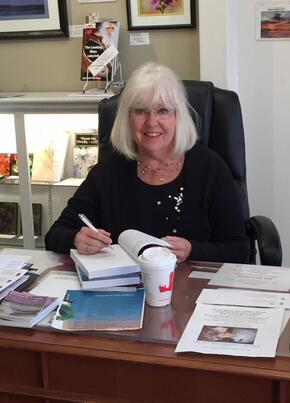



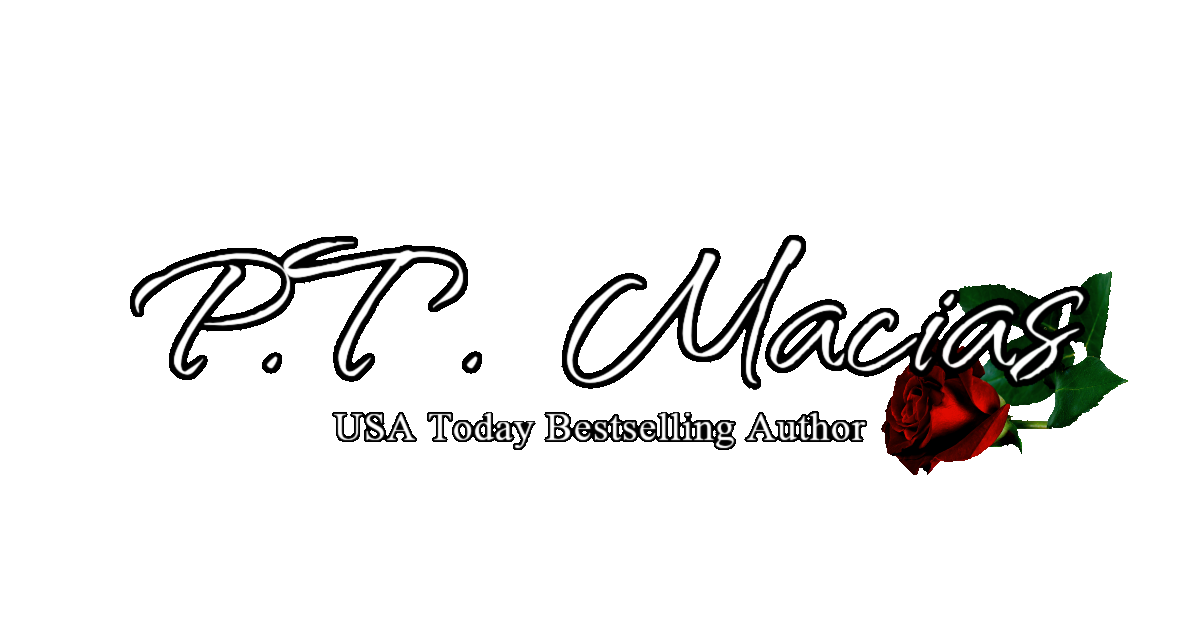

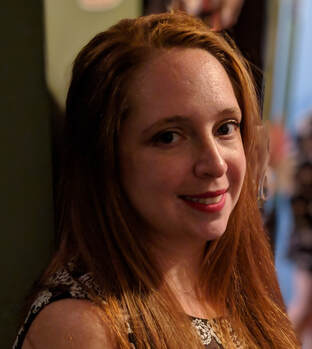

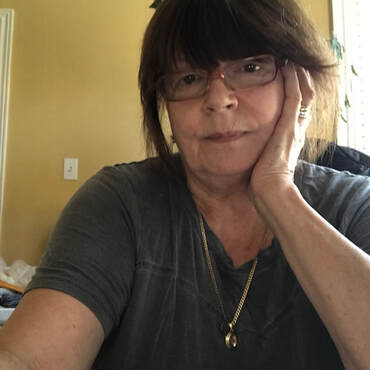



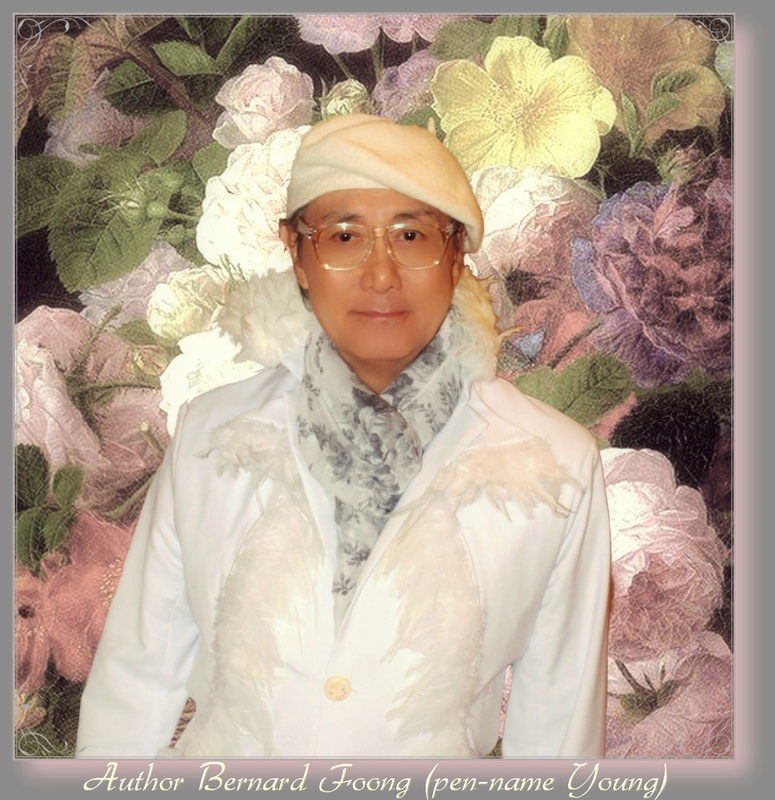
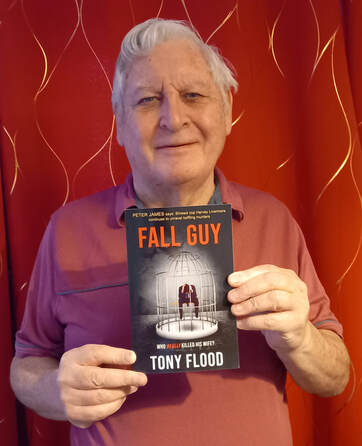

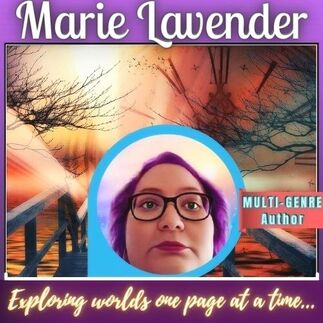





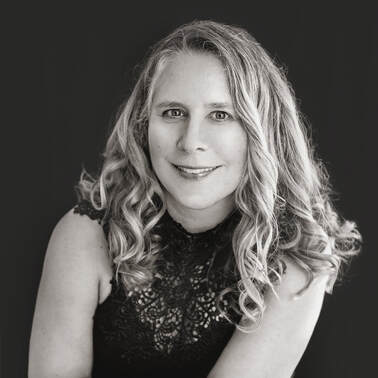
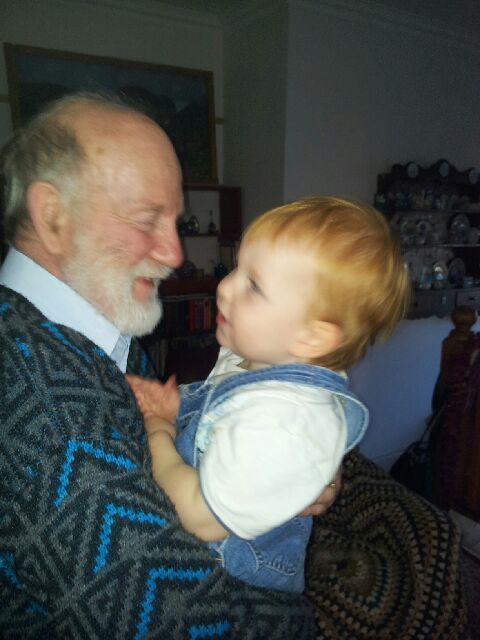

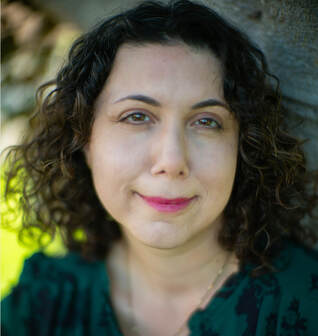
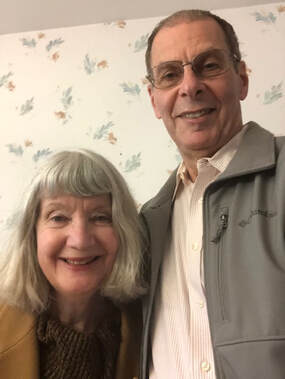
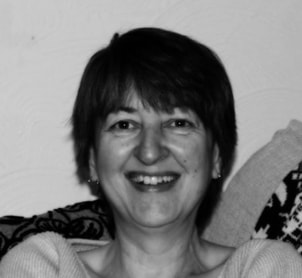







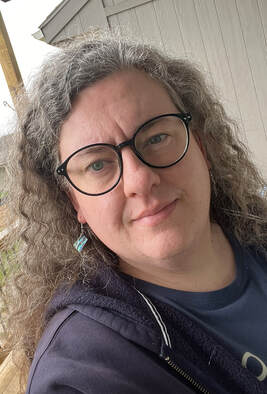





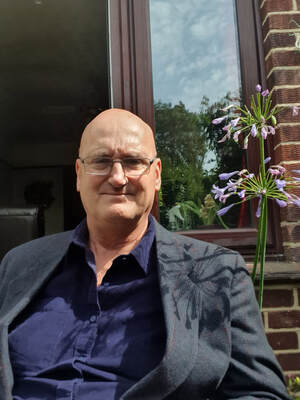




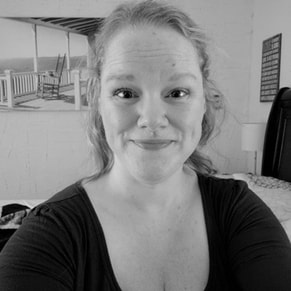










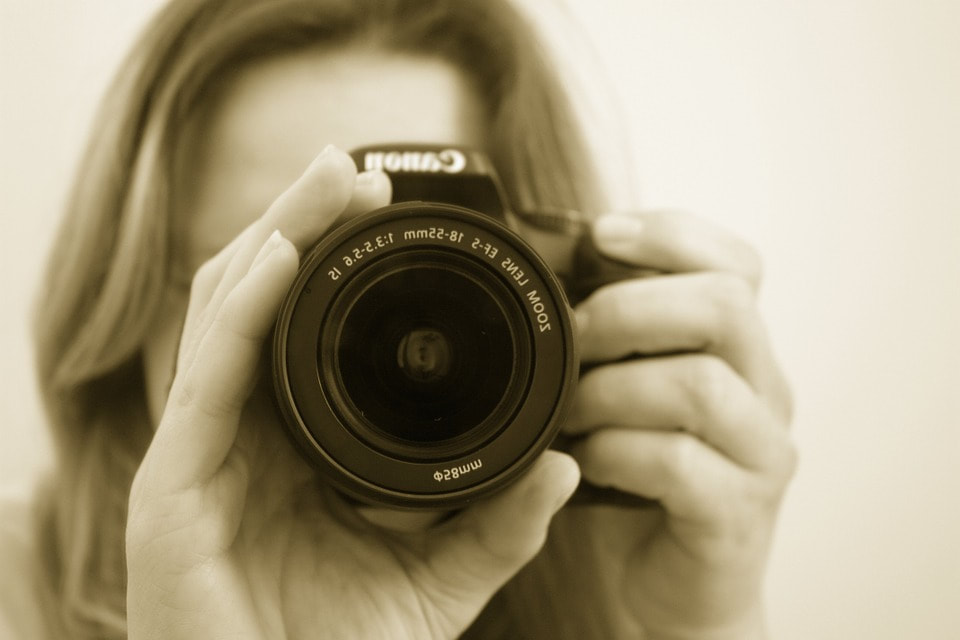







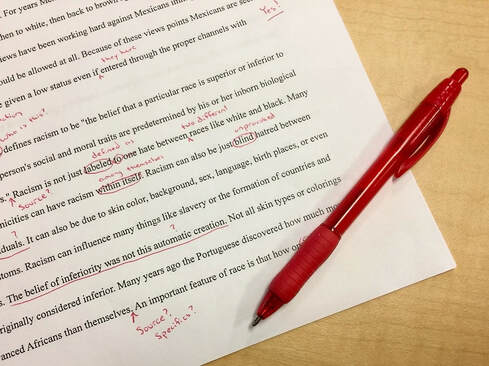

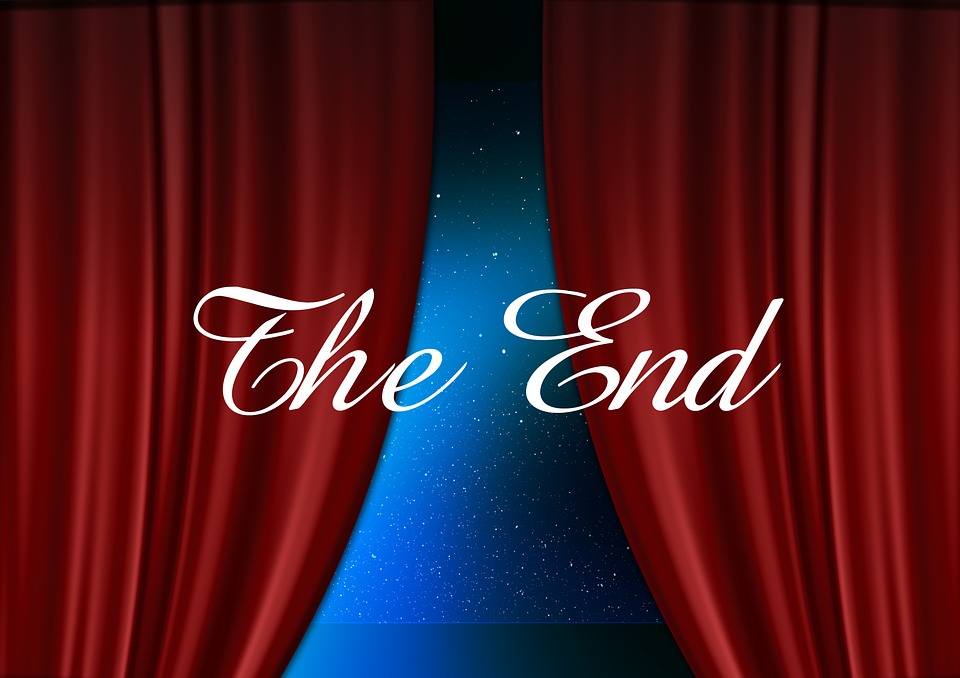





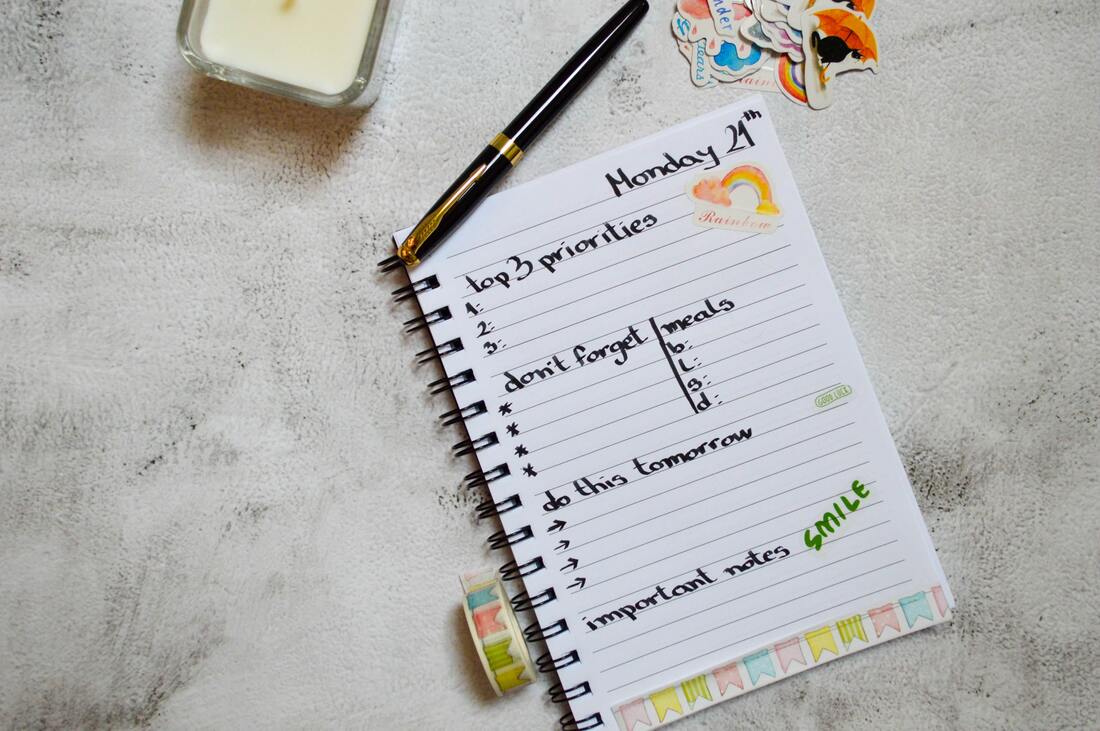










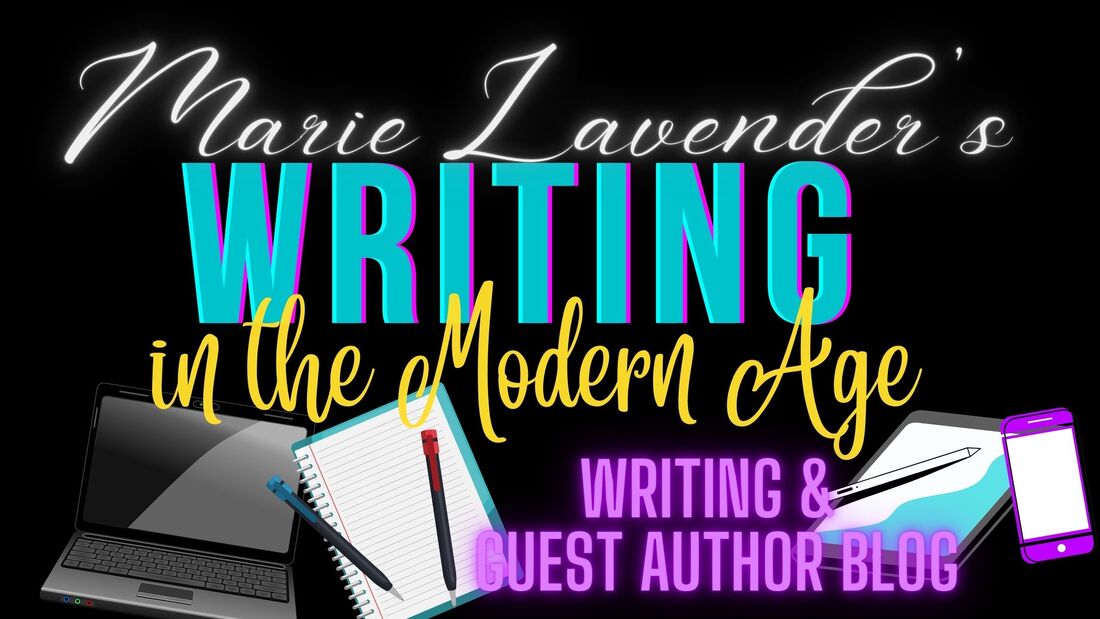

 RSS Feed
RSS Feed

